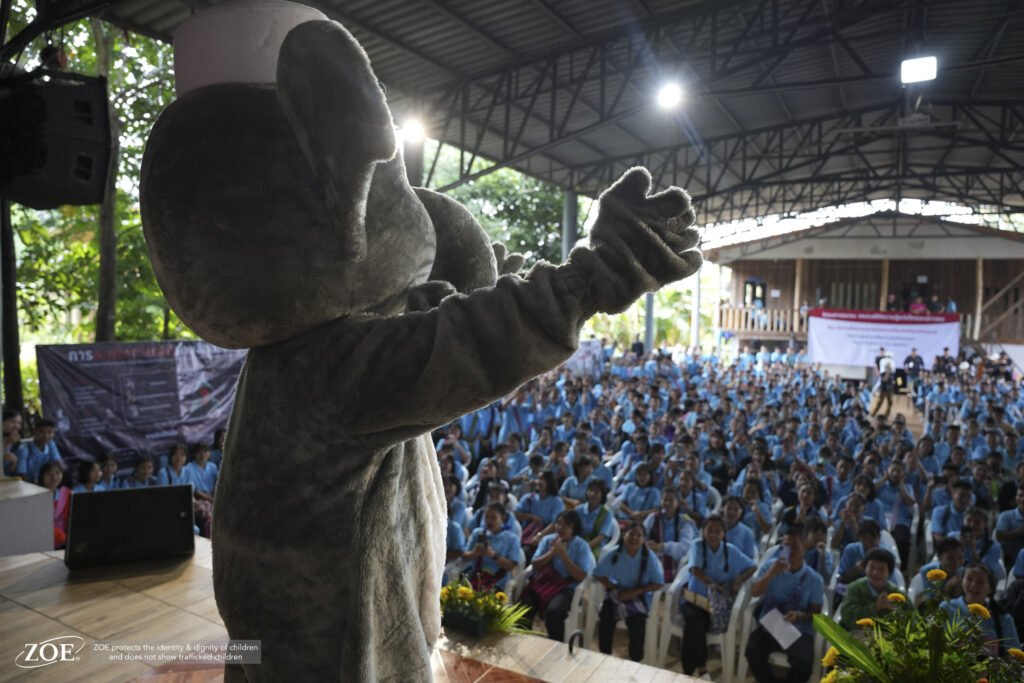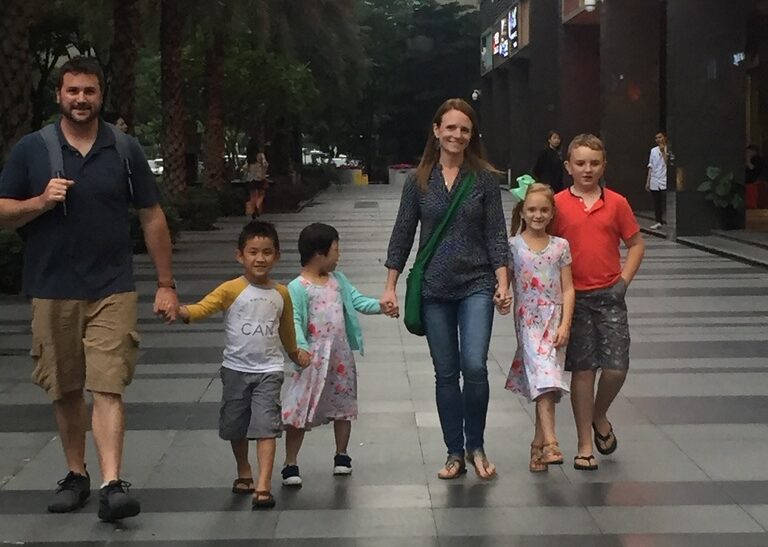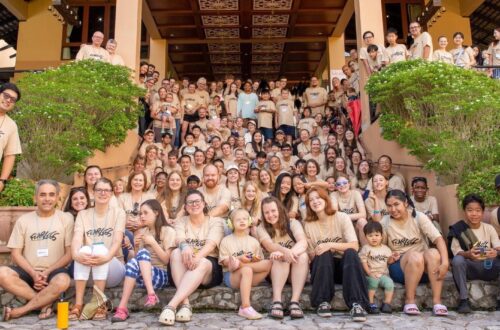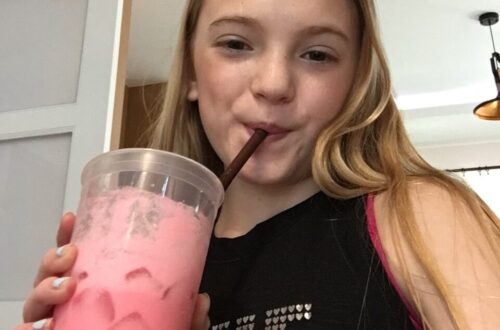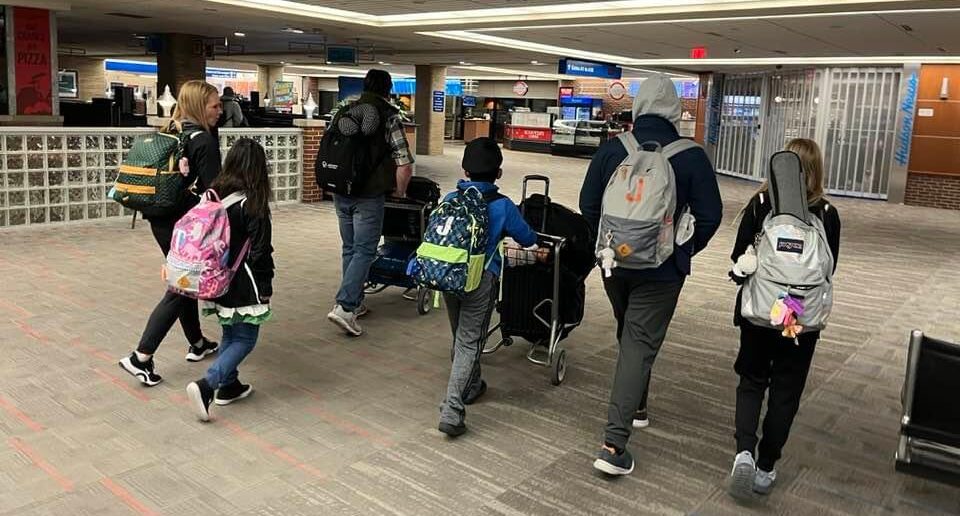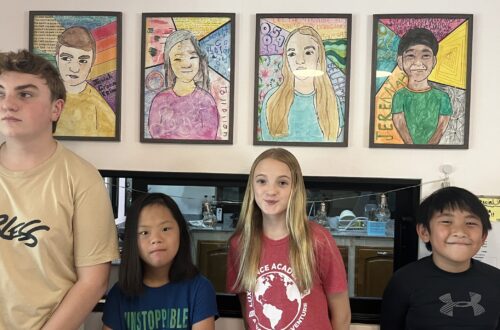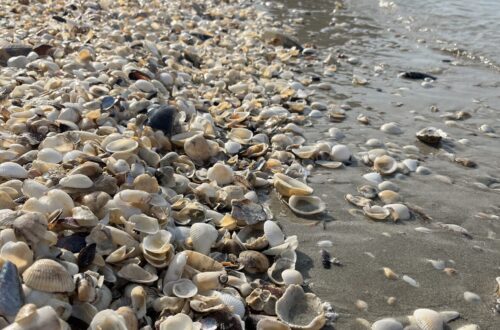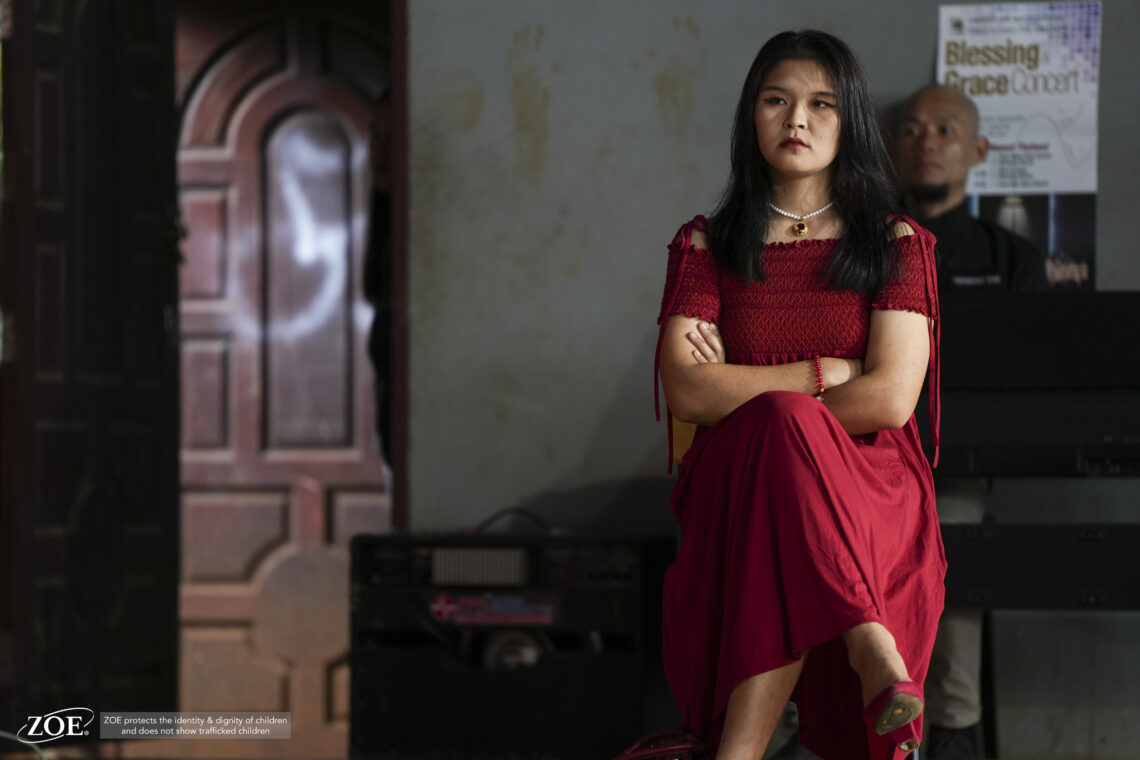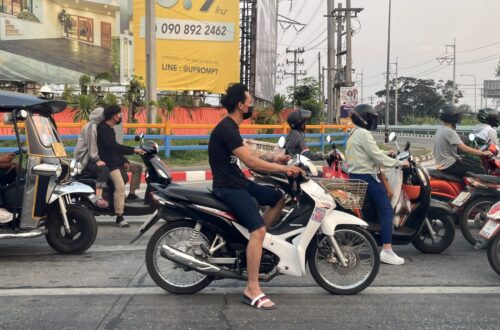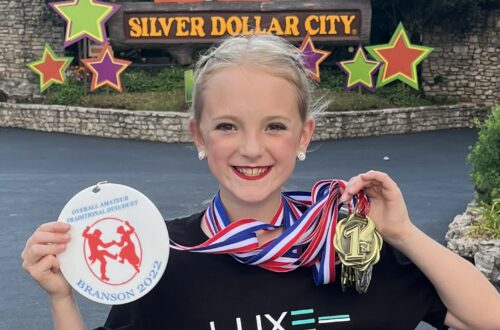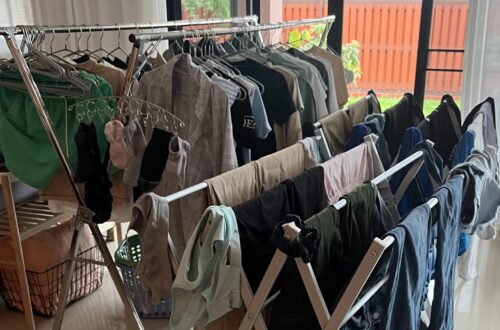-
My Sister
My Autobiography, PART 1
When I was 7 years old my family and I went to China. We went to adopt the cutest little girl named Tallulah who is now my sister. Tallulah was a 10-year-old Chinese girl with Down Syndrome. It’s not very common to travel across the world as a 7-year-old. It’s not common to travel across the world with a 7-year-old (and my brothers were only 5 and 10). But we did it anyway and we brought our grandma along as well. So off to China we went. It was a long flight. A very long flight. It felt like it went on forever. But finally, we made it to China. We first landed in Beijing, the capital of China. I don’t remember much about Beijing. All I remember is going to the Great Wall of China. Nothing about China was the way I thought it was going to be, but the Great Wall was pretty much exactly like I thought it was going to be. But better. It was so big, so high, and there were so many stairs. It was so cool. The wall was made of gray bricks and lots of stairs. It was so tilted that if we walked right side up it looked like we were leaning back. It was pretty special and a fun story to tell.
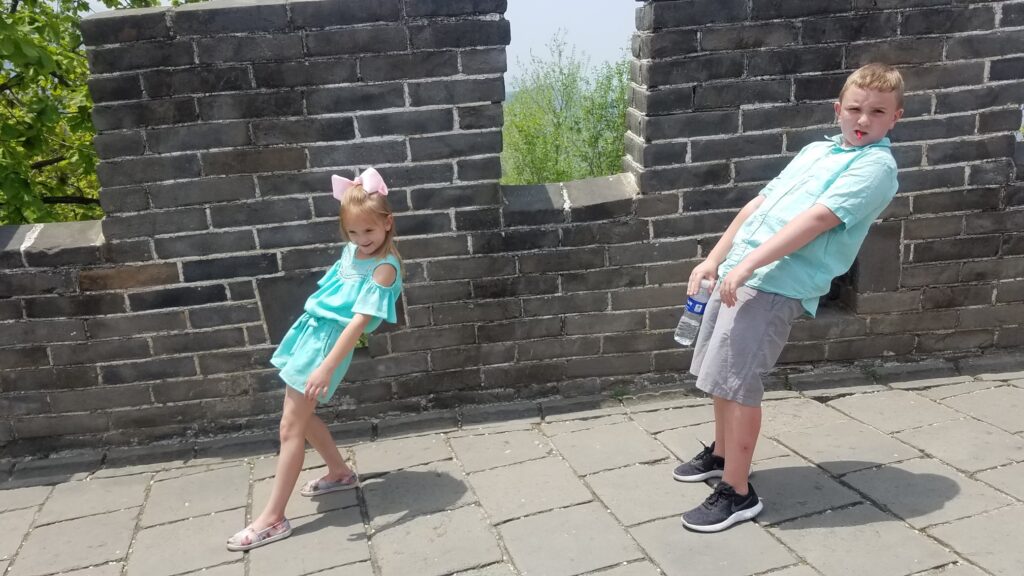
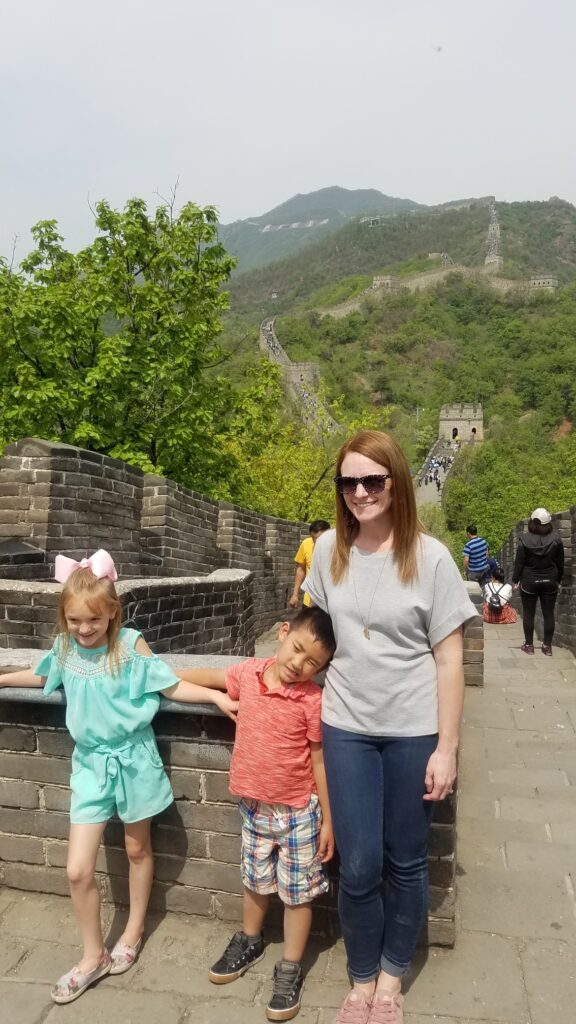
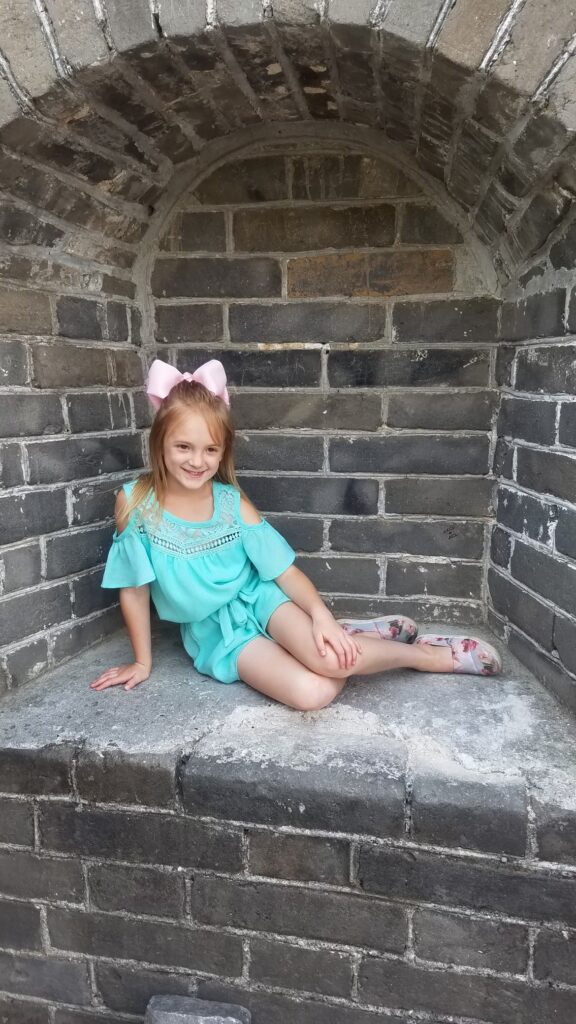
But Tallulah did not live in Beijing, she lived in an orphanage in Guangzhou. So, we took an overnight train to Guangzhou. We got three rooms. One room was with Grandma and I, one room with my mom and Jeremiah, and one room with my dad and Josiah. The rooms were small and not all that nice, but they were ok. After 23 hours we made it to Guangzhou.
The next day, we went to go meet Tallulah. When we saw her, the first thing she did was scream. She couldn’t stop crying and did not want to go home with us at all. She kept screaming “MOM!” “MOM!” and when they told her that our mom was her new mom she cried even more. It must have been so scary. She grew up in an orphanage (though she probably did not know it was an orphanage) and it was the only place she ever knew and called home. The people there were the only family she ever had. Then one day they took her away and gave her to some strangers and told her that she would never get to go home again. I mean, what if someone took you out of your home, gave you to some strangers, and said that you would never see your family again. That would be very scary. If only she knew then what she knows now.
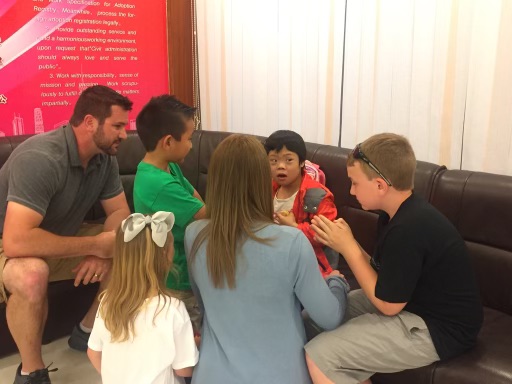
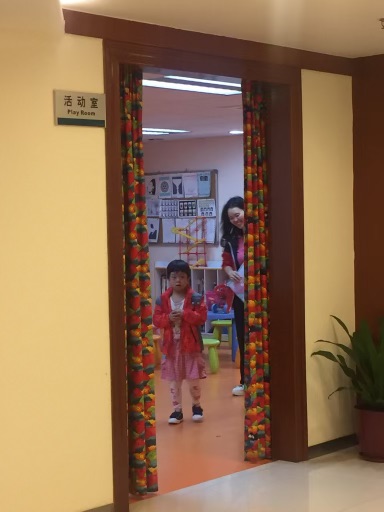
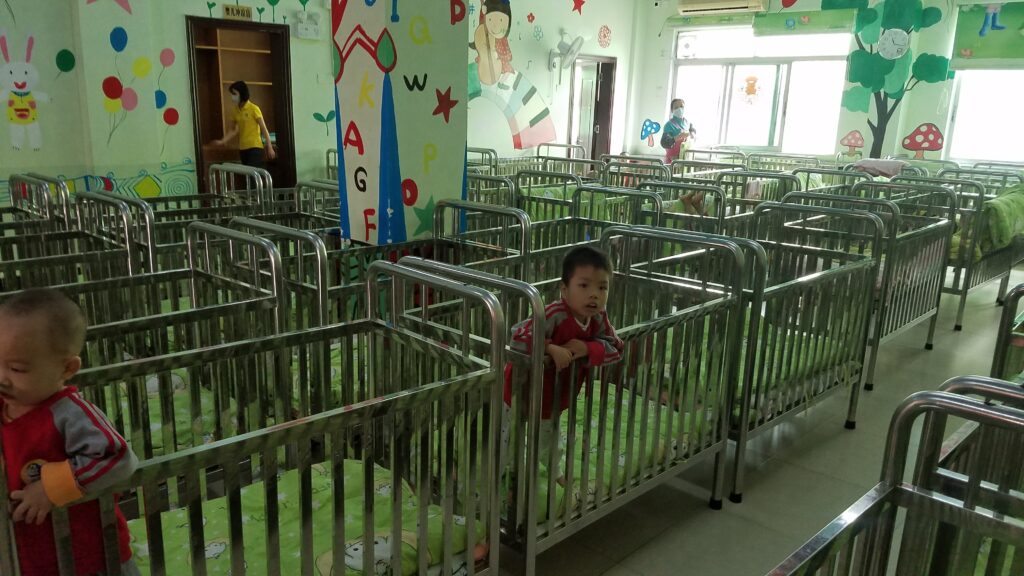
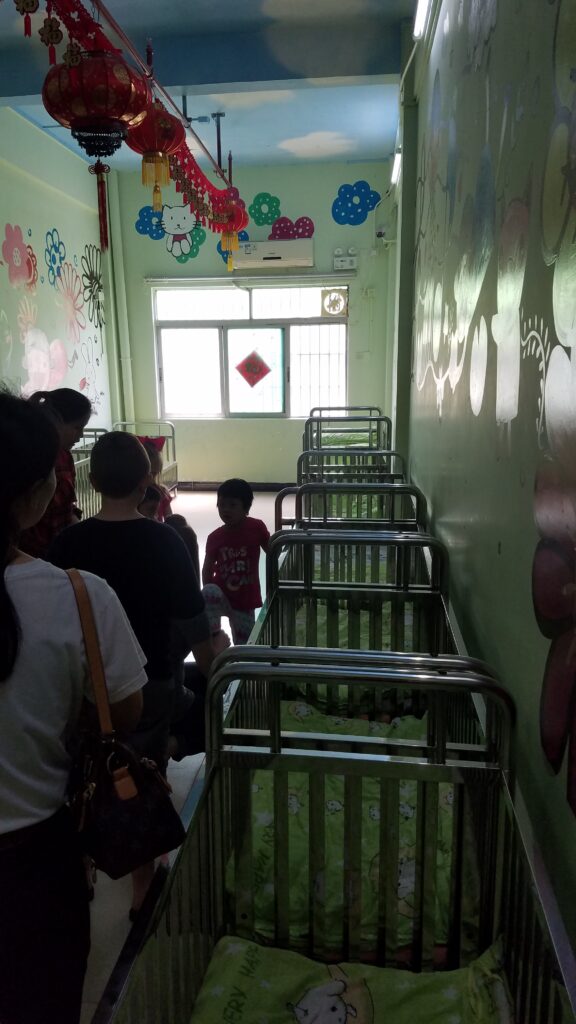
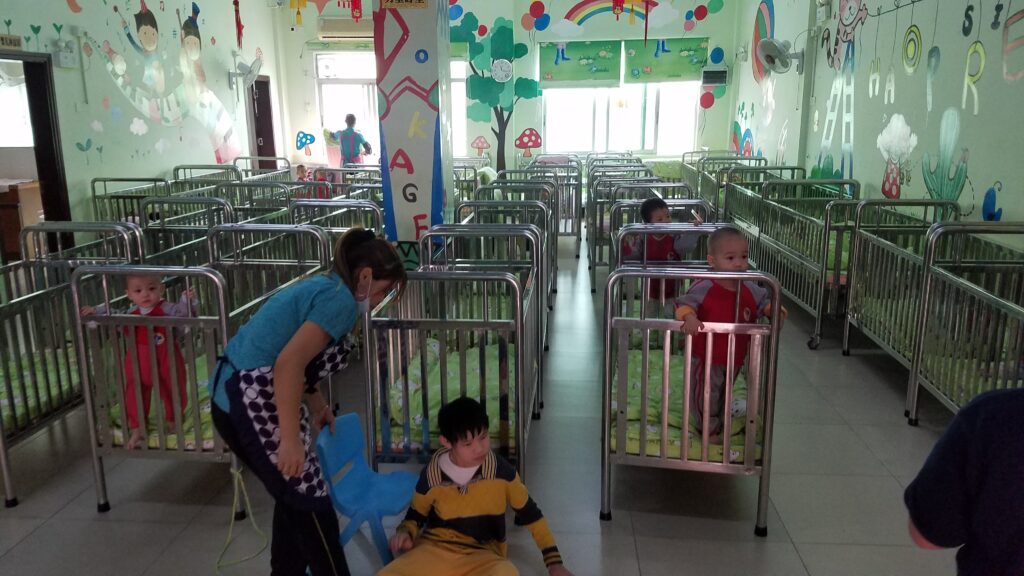
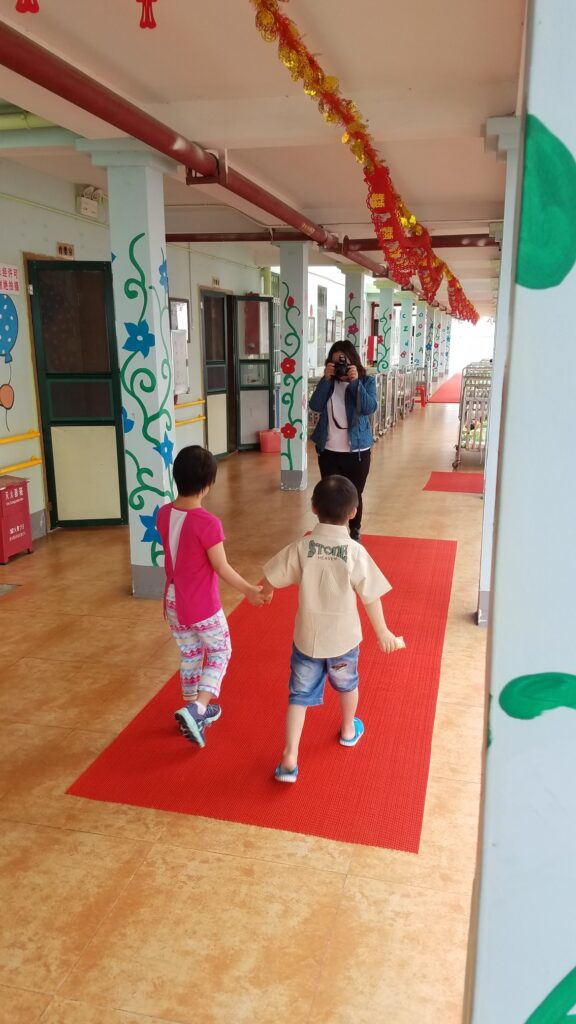
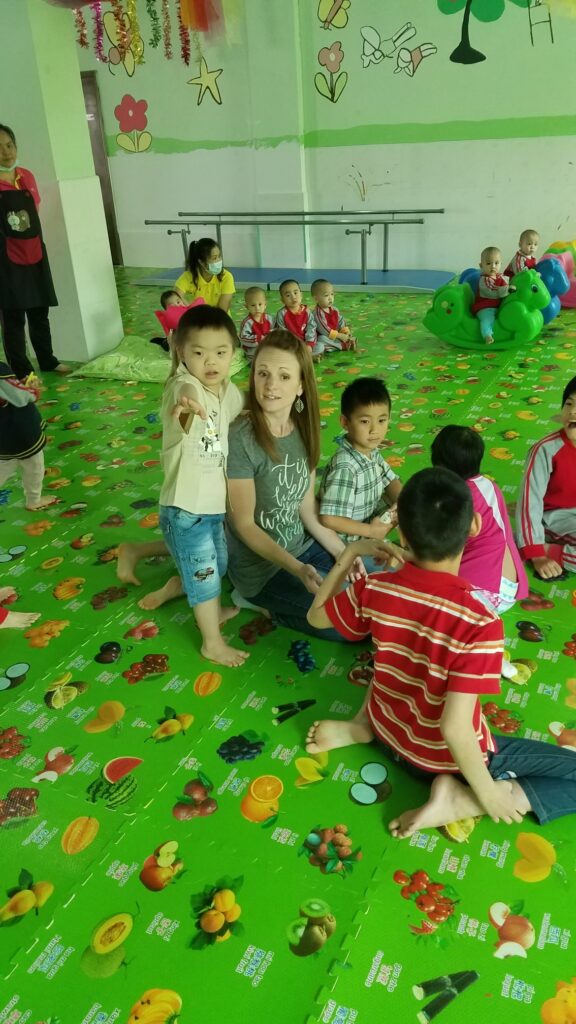
After we brought her to our apartment, she kept grabbing her backpack wanting us to take her back to her family. Whenever we told her that we were her family she got upset and one of the only things that would cheer her up was a yogurt drink.
By the way, Tallulah does not speak Chinese or English. She sort of speaks her own language. She didn’t seem to have a problem understanding what we were saying, which was impressive. Still, she couldn’t say any words.
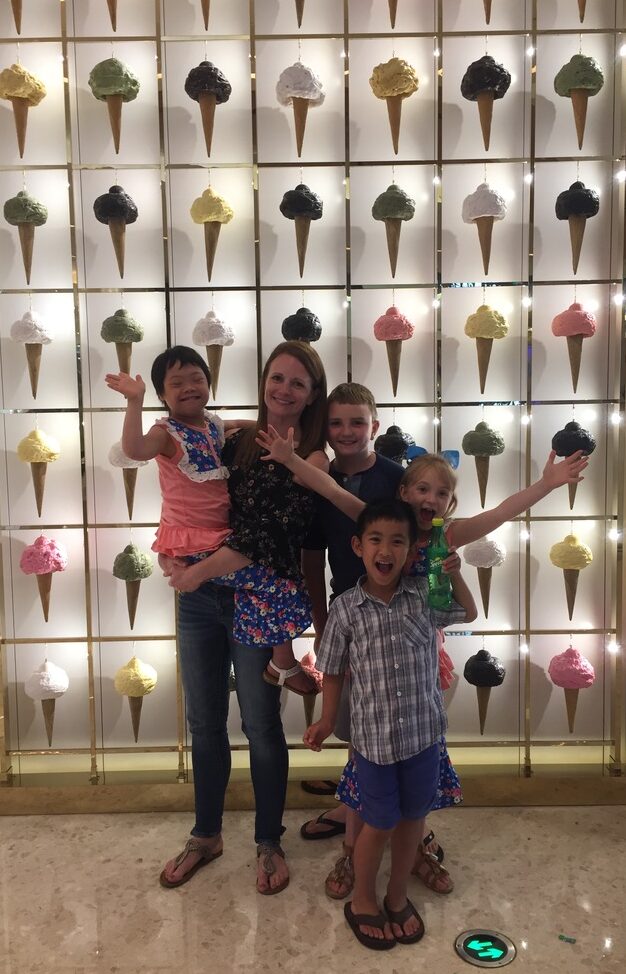
Two days after we got Tallulah it was my eighth birthday. It was fun because there was a time difference, so I kind of had two birthdays. One in America time, and one in China time. I don’t remember exactly what we did on my birthday but sometime around there we went to a really awesome zoo, and we had a lot of fun. It had one cool trolly ride where there were a bunch of animals without cages just walking around.
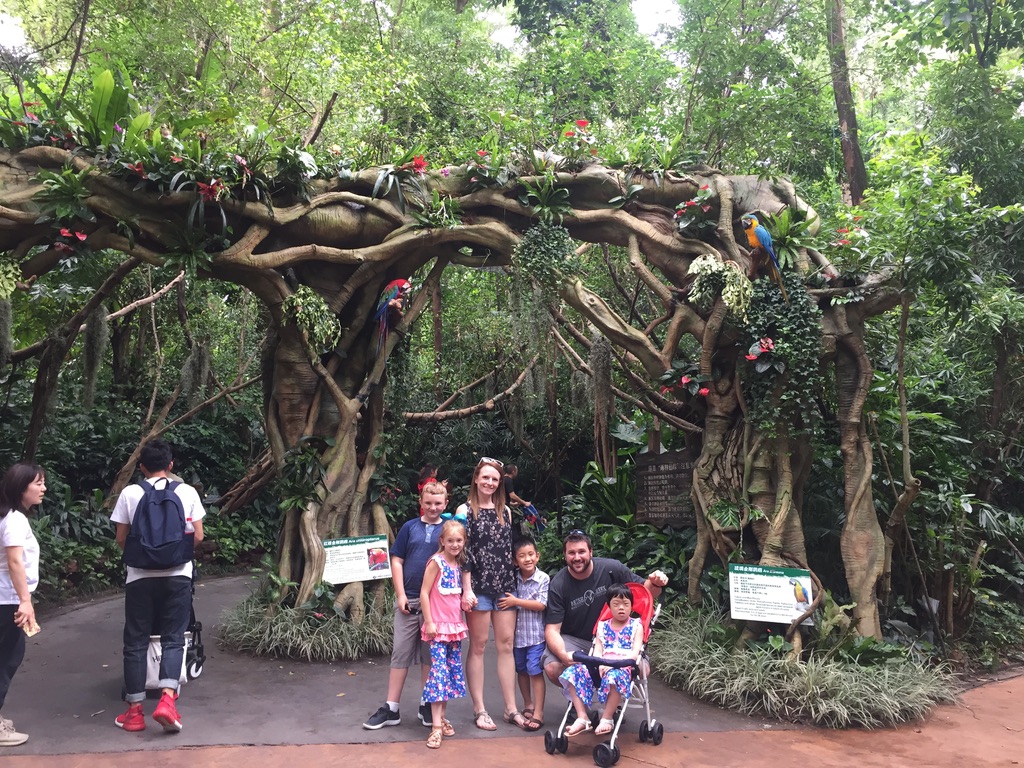
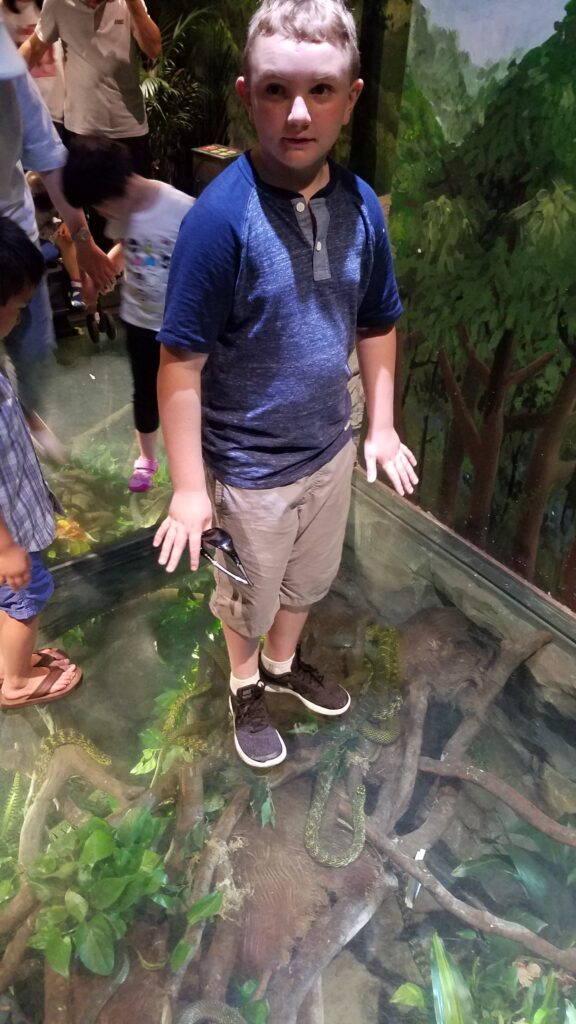
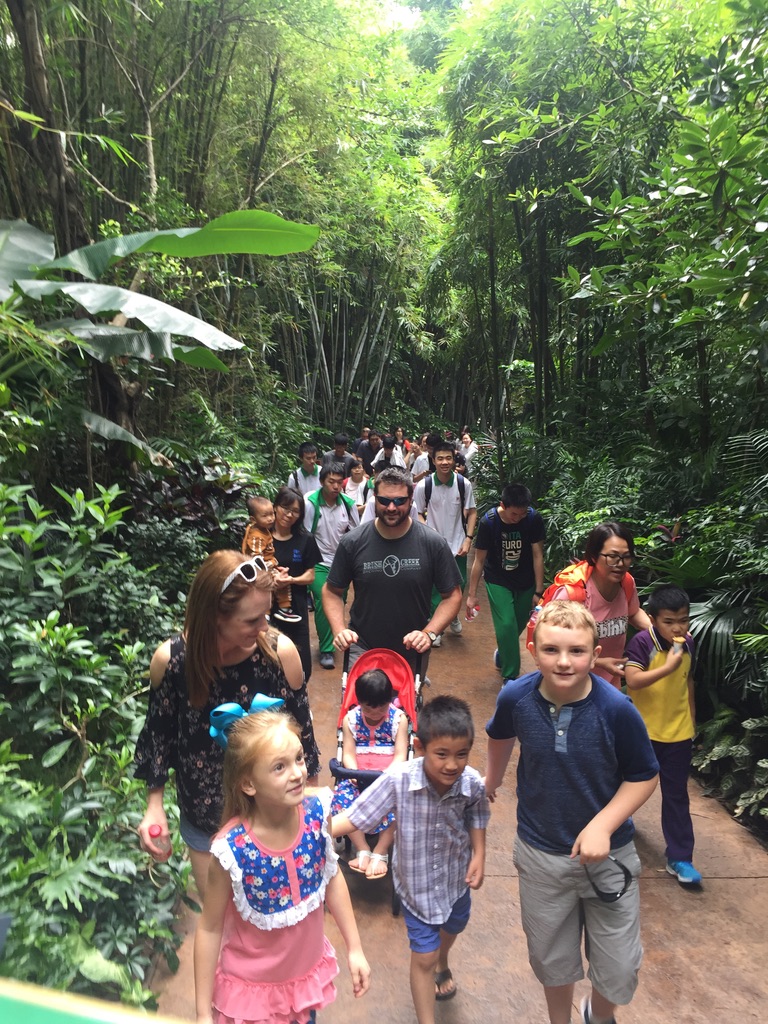
After we got Tallulah in Guangzhou, we went to Hong Kong. We took a bullet train to Hong Kong, and we went to Disneyland. This was my first time being to Disneyland that I can remember, and it was so fun. There were a lot of rides I was too scared to go on, but my favorite was the Iron Man Experience. It was a motion simulator ride, and it was so fun. I wish I could go on it again because it is one of my favorite rides I have ever been on. Tallulah was too scared to go on a lot of rides including that one so Mom or Dad had to stay out with Tallulah but that was ok. We still had a great time.
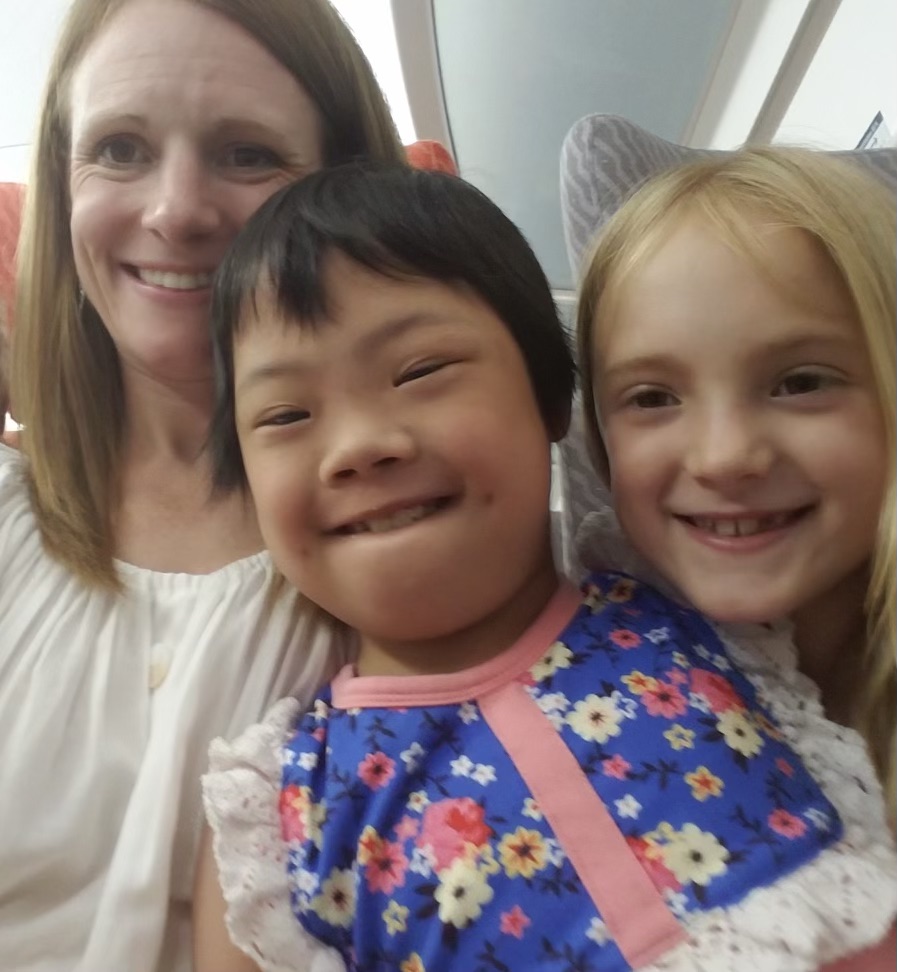
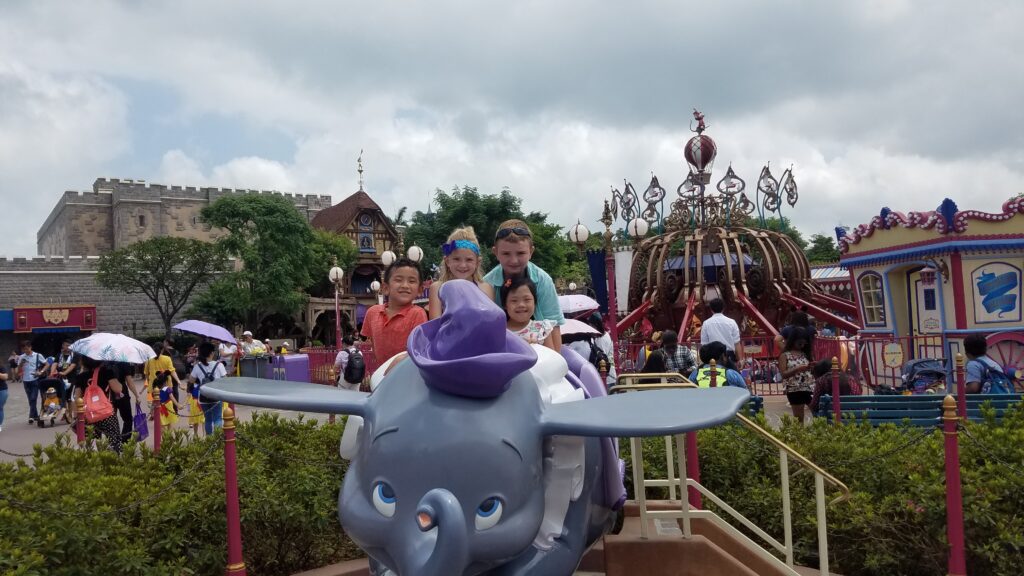
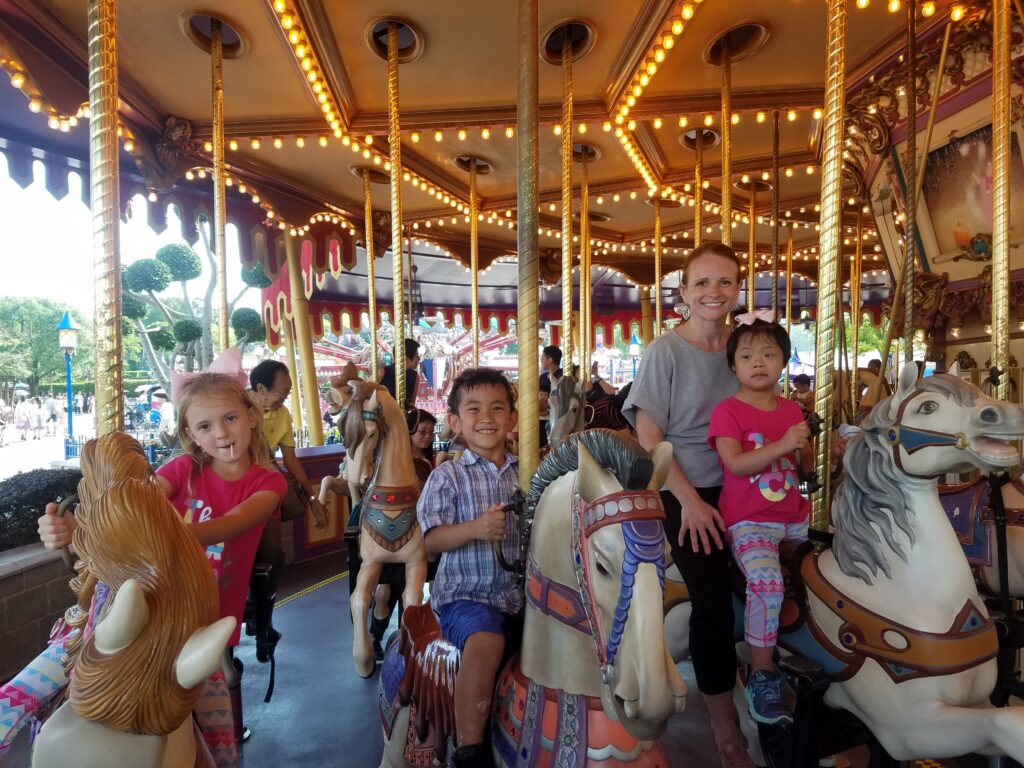
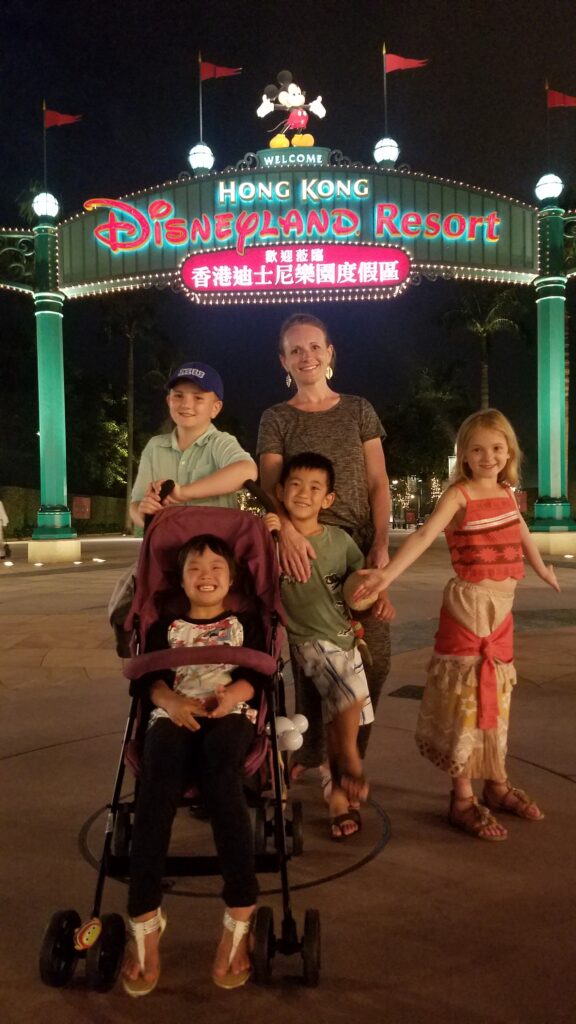
That was our trip to China. We went to the Great Wall, got Tallulah, I spent my birthday there, and now I have the best sister I ever could have wished for. Plus, now I have a bunch of stories to tell!
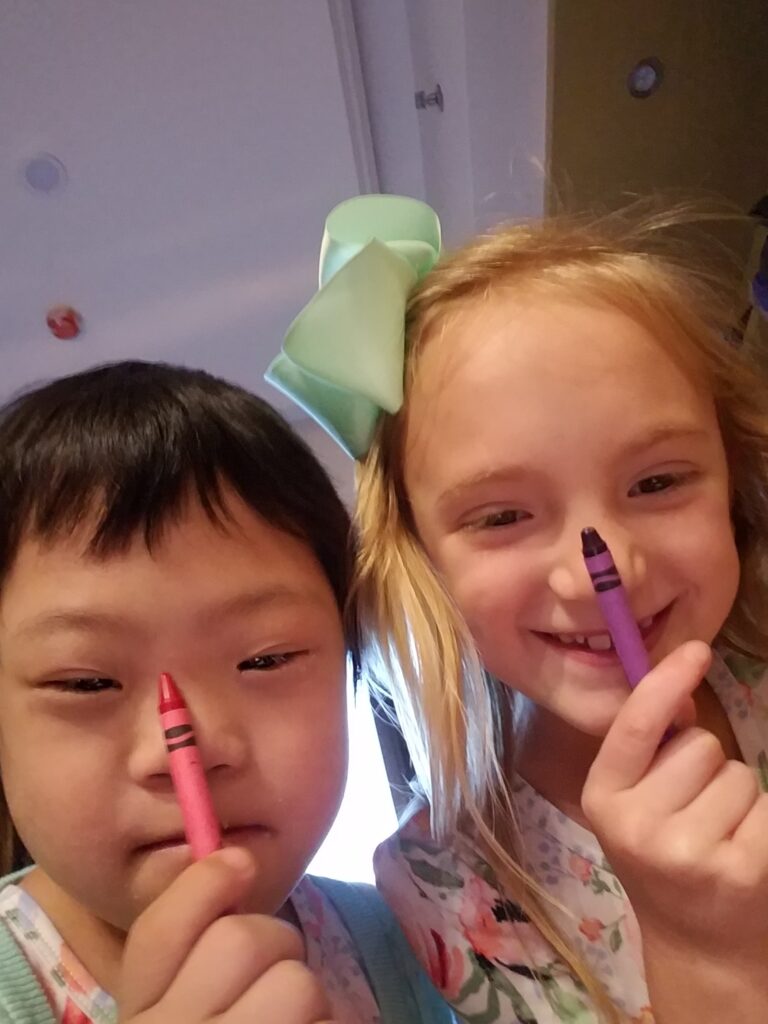
-
Moving To Thailand
This personal narrative was originally written by Jeremiah Keim as a requirement of his coursework for The Good and the Beautiful Level 3 Language Arts.
The day mom and dad told us we were going to move to Thailand, I was scared because I thought I wouldn’t be able to see my friends again. I was sitting on the couch and it was dark outside when mom and dad told me and my brother and sisters. After I calmed down, I felt really excited about it. It took several days to pack and we made our house into a place for other people to stay. Finally, the week before we moved we went to spend time with our family. Personally, I felt really sad that we would have to leave them but also really happy because they said they would sometimes visit us.
When we went to the airport it was really early in the morning. When we got to the airport we said goodbye and then loaded all our stuff onto the plane. Our first plane ride, I took a nap and when I woke up we were nearly to Detroit. The next two flights were nice and comfy because I got to watch movies and wear soft, warm, fuzzy slippers. It was longer than I expected, but then we finally got to Thailand. I felt really happy because we met all the ZOE people and I finally got to breathe fresh air again (the air wasn’t really fresh it was actually smokey, but, hey, at least it was air that wasn’t inside the plane all night).
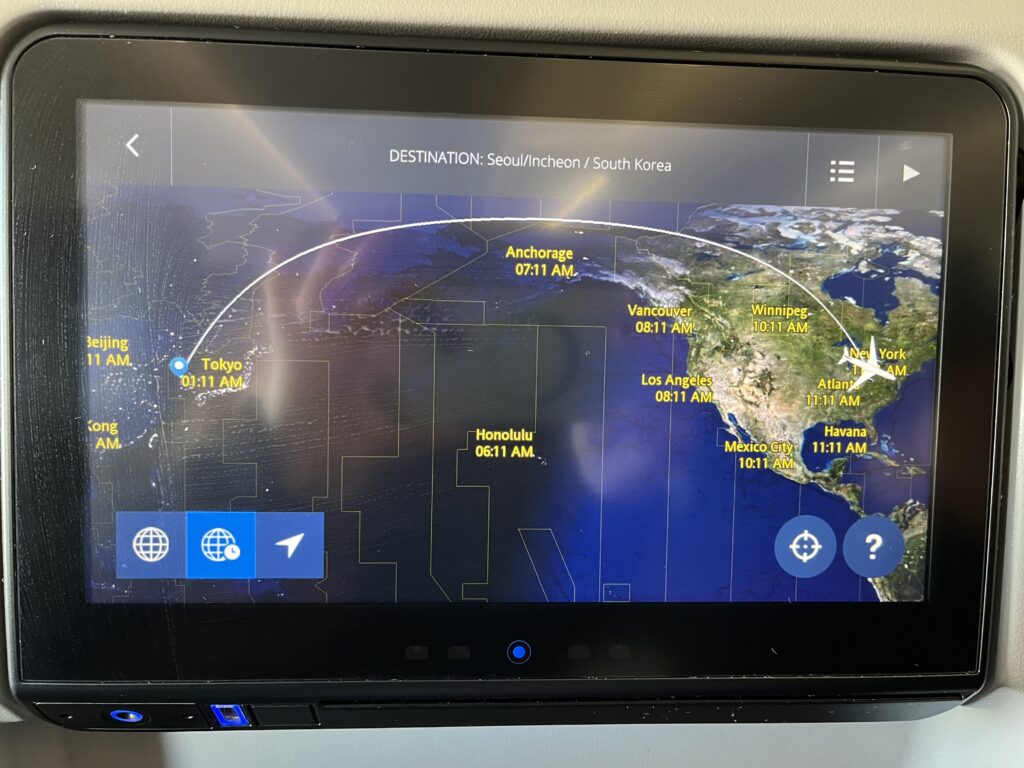
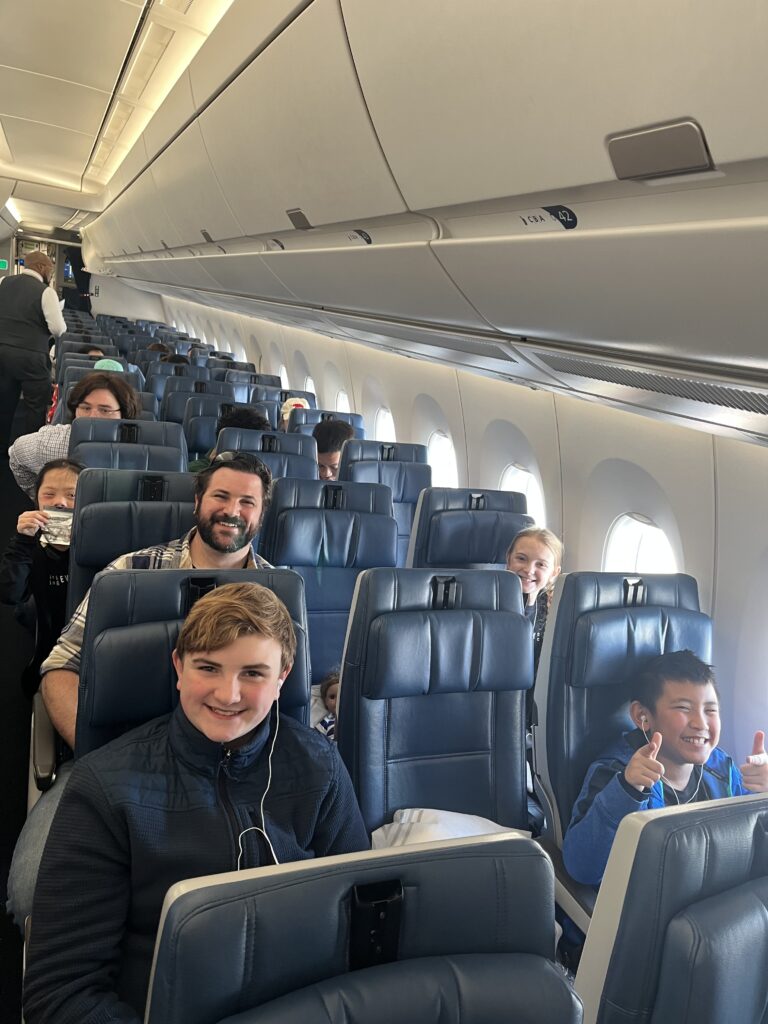
First, one of the missionaries took us to the house that we chose to live in. It was OK, but I was really scared of the geckos and of the snakes that might live here. Luckily, I haven’t seen any snakes. Eventually, I started to like geckos. I like to catch them and release them outside.
Next, the missionaries took us around to all their favorite restaurants and stuff. For example, we got to go with a missionary to a plant market. It was pretty fun. I saw lots of cactuses and Elephant Ear plants. Another example is that another missionary took us to this really cool art gallery where the paintings look super realistic, like you were holding a hammer in the painting or like you were fighting a dragon.
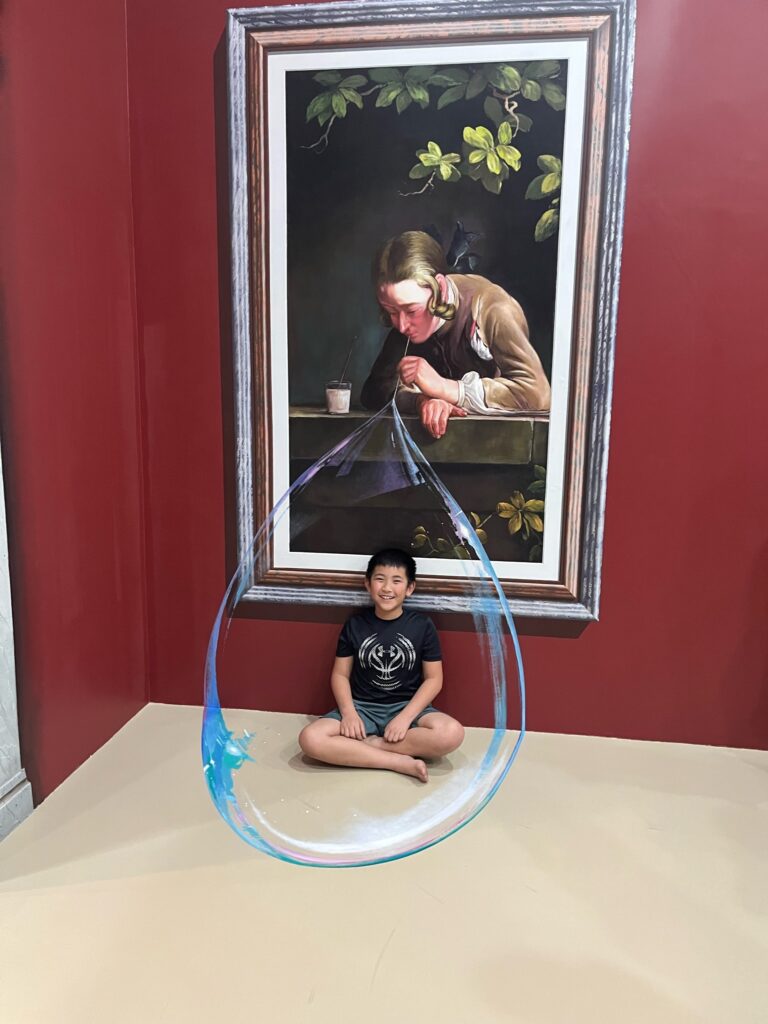
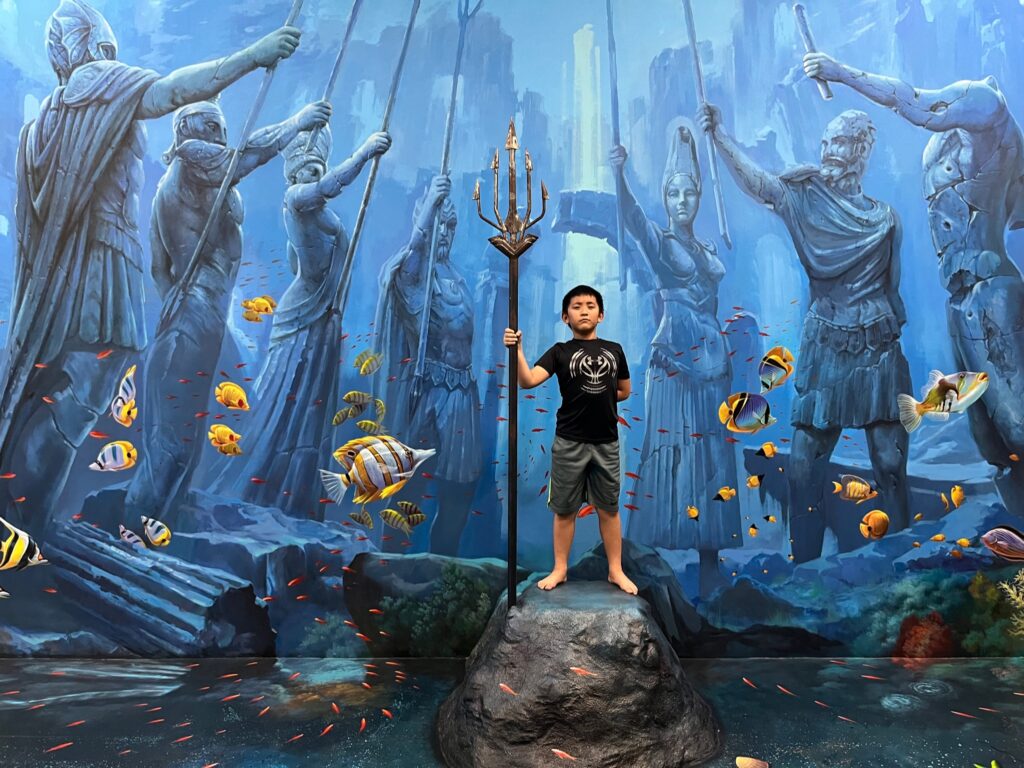
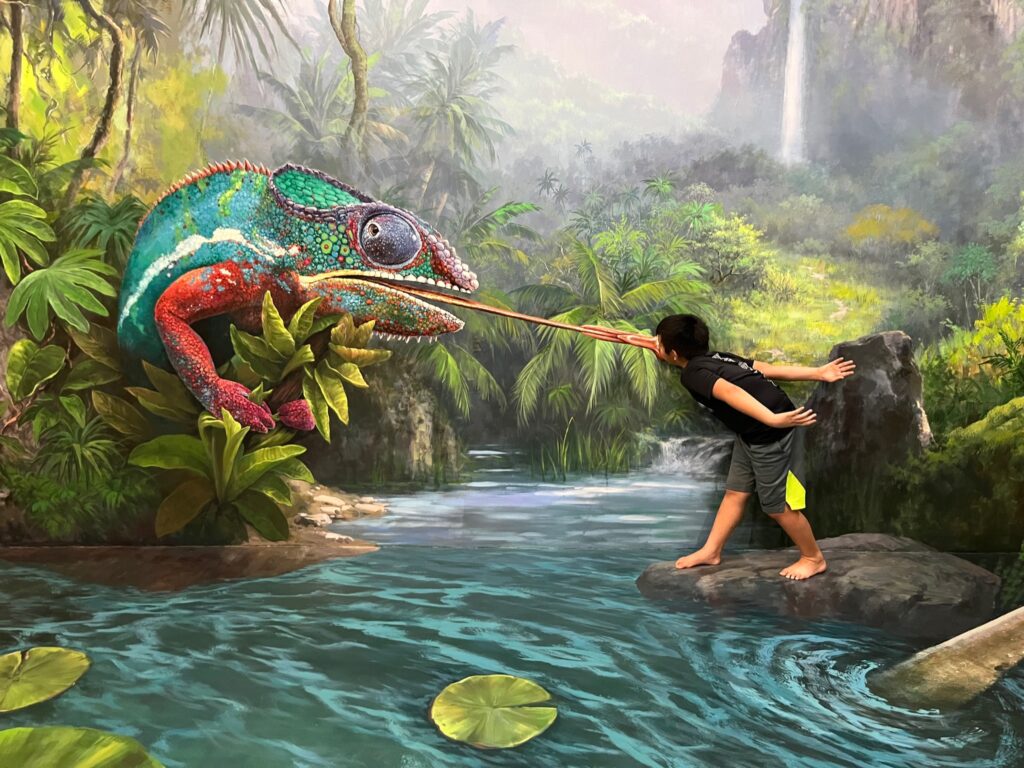
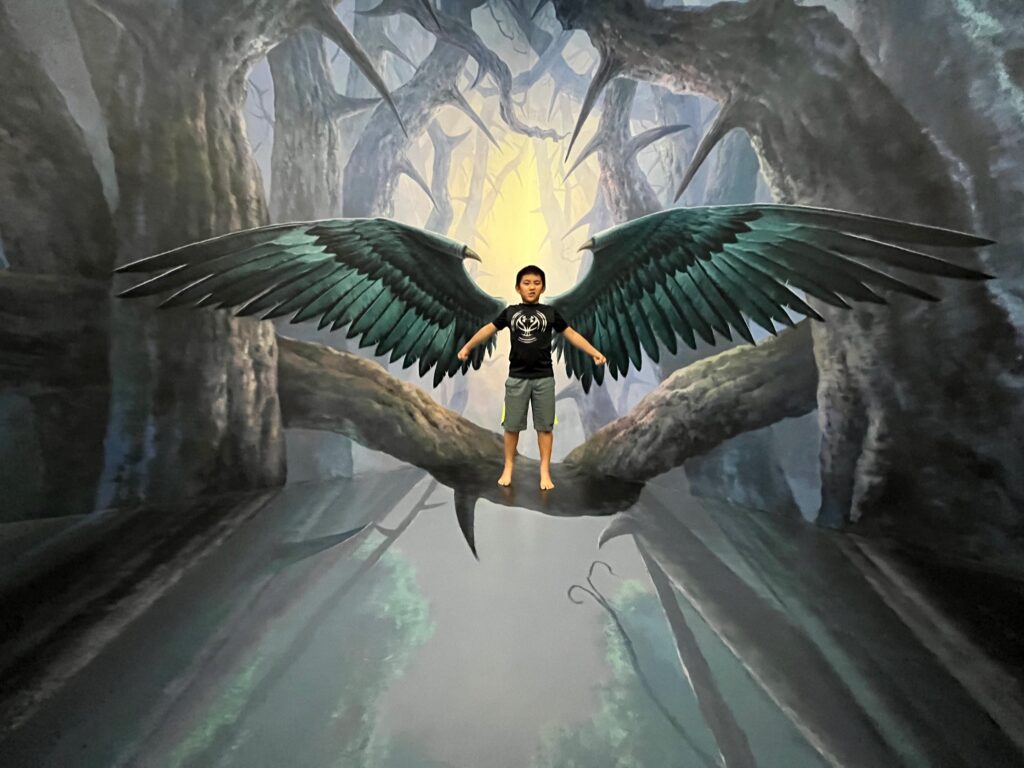
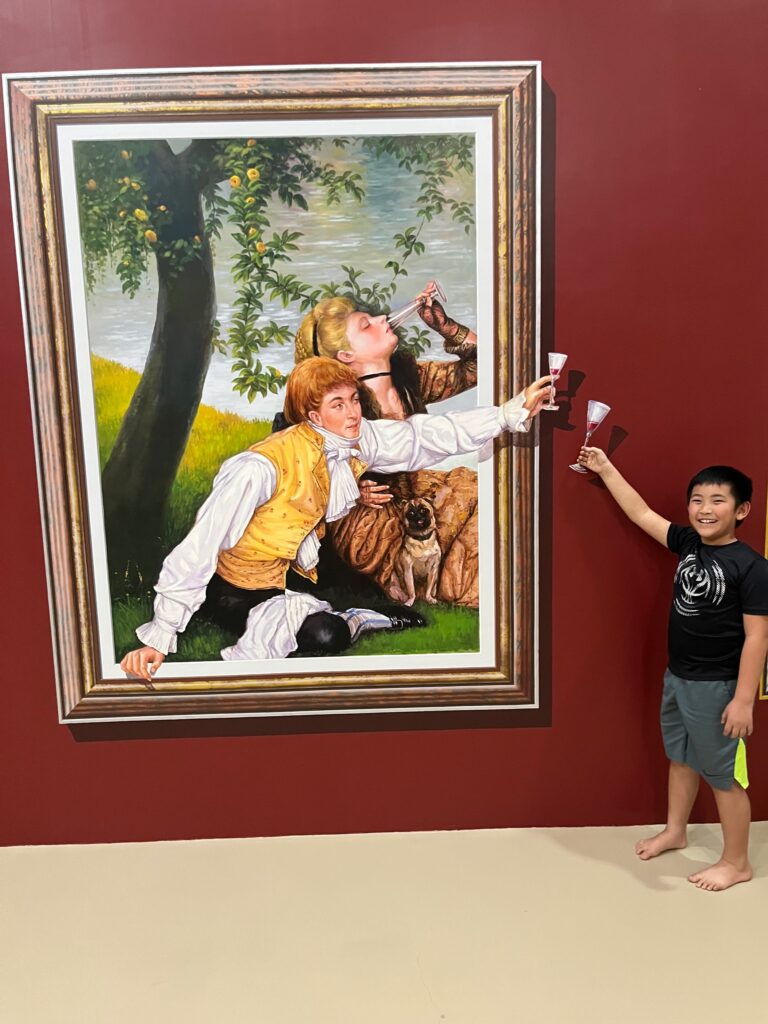
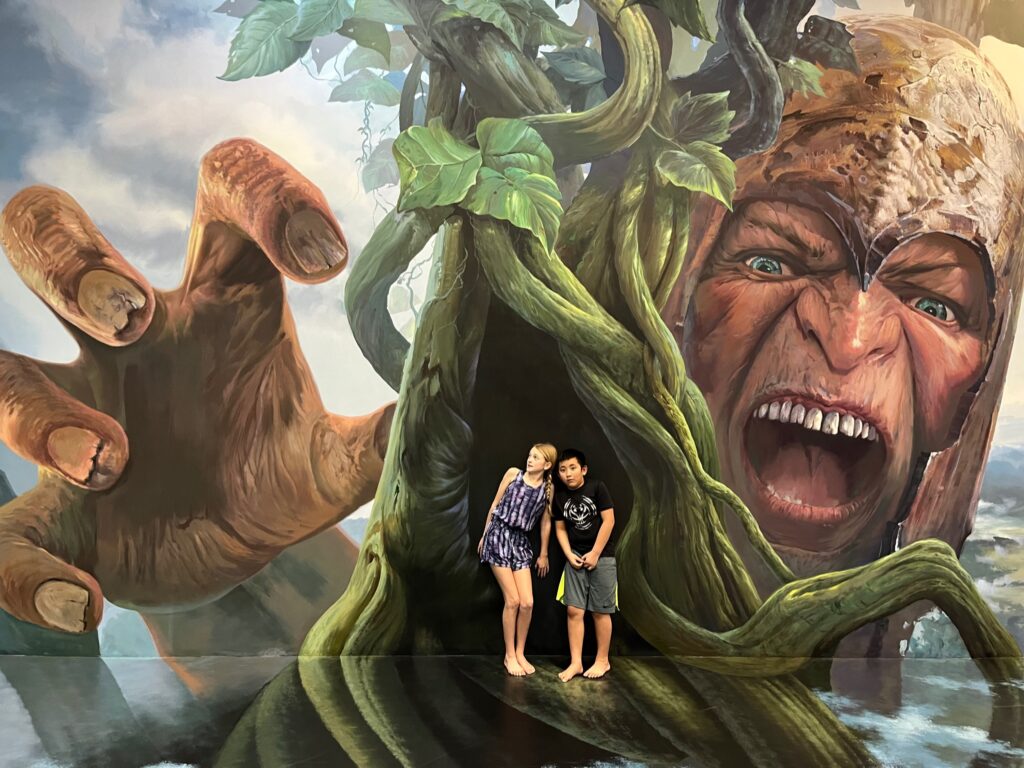
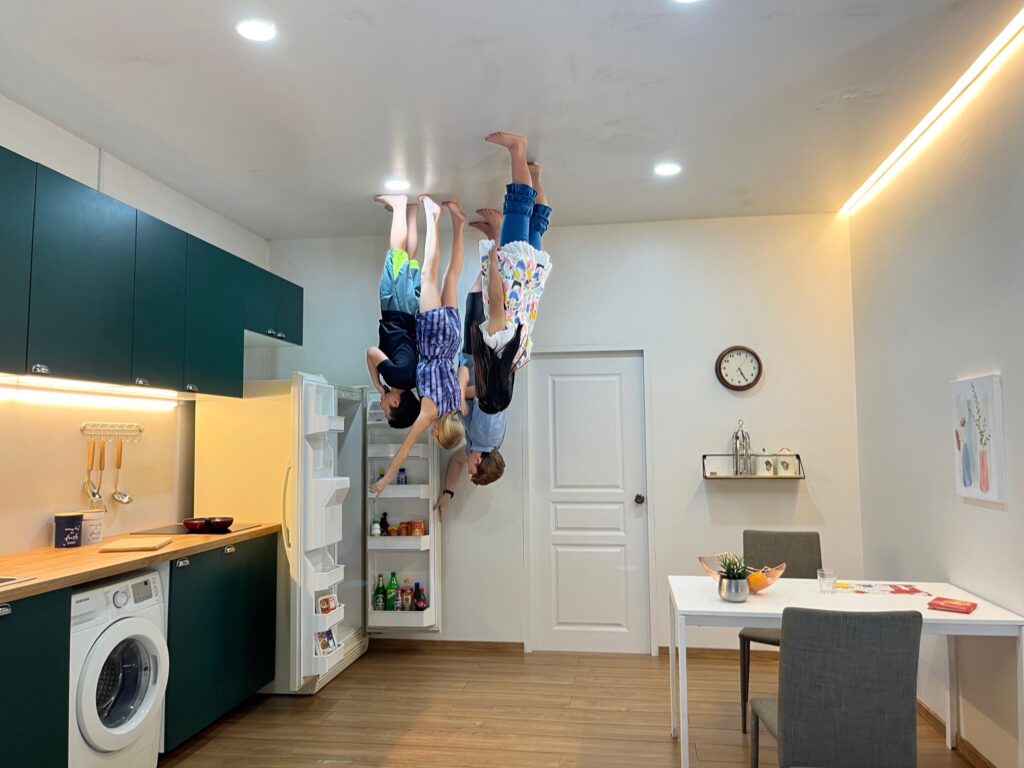
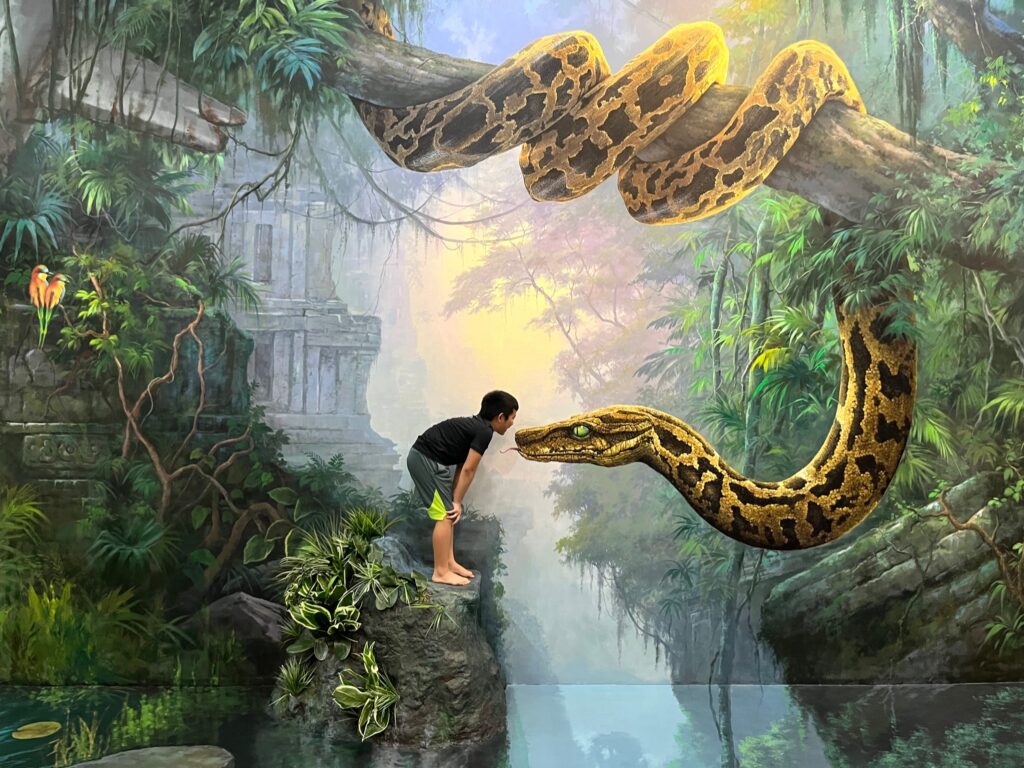
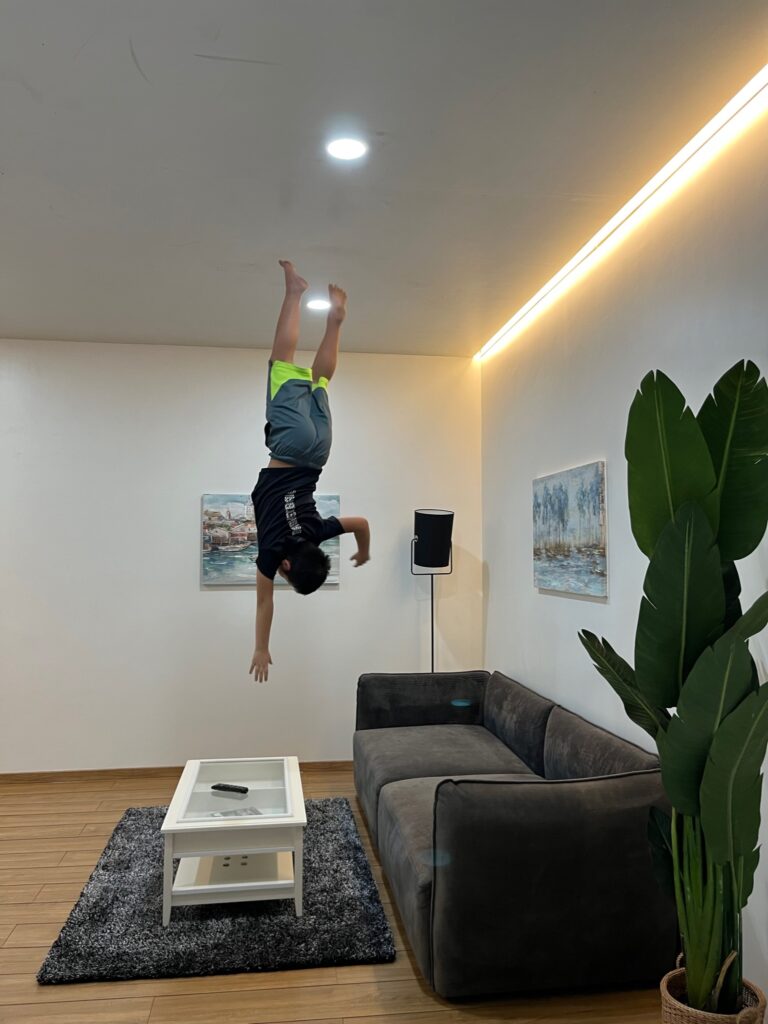
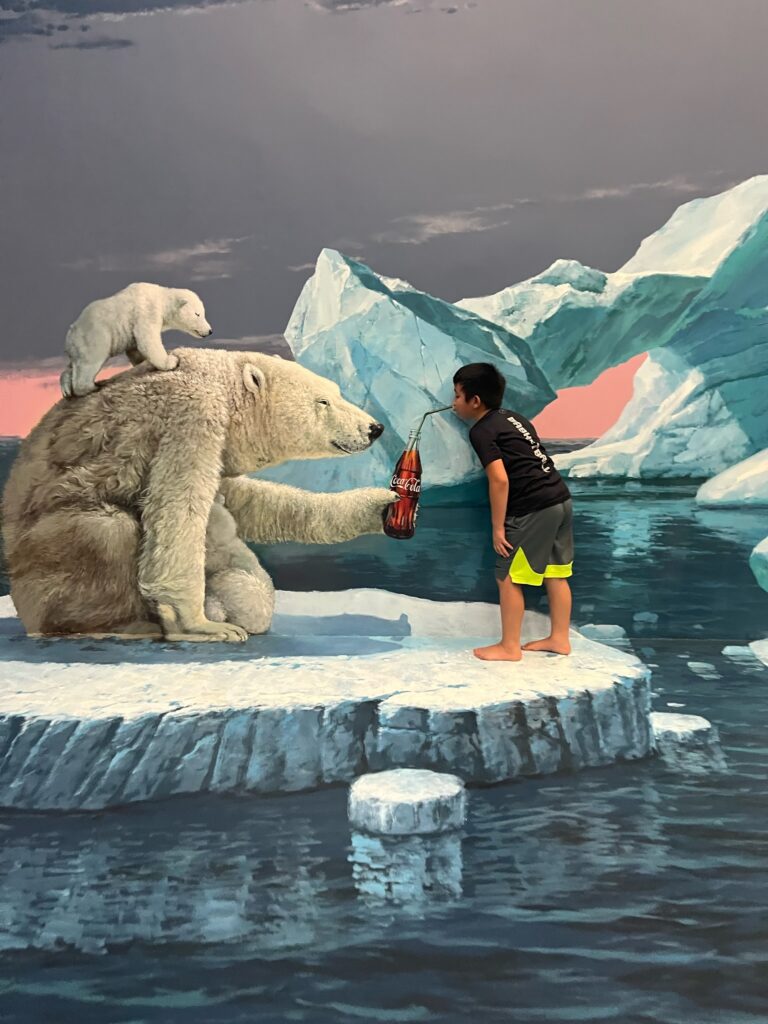
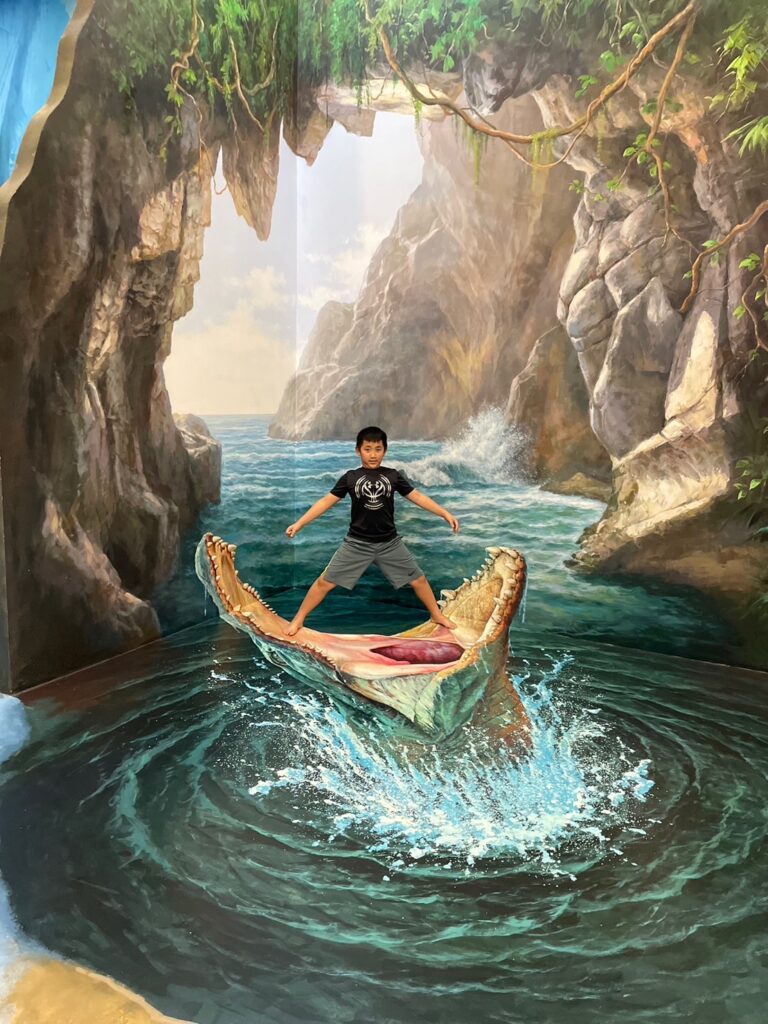
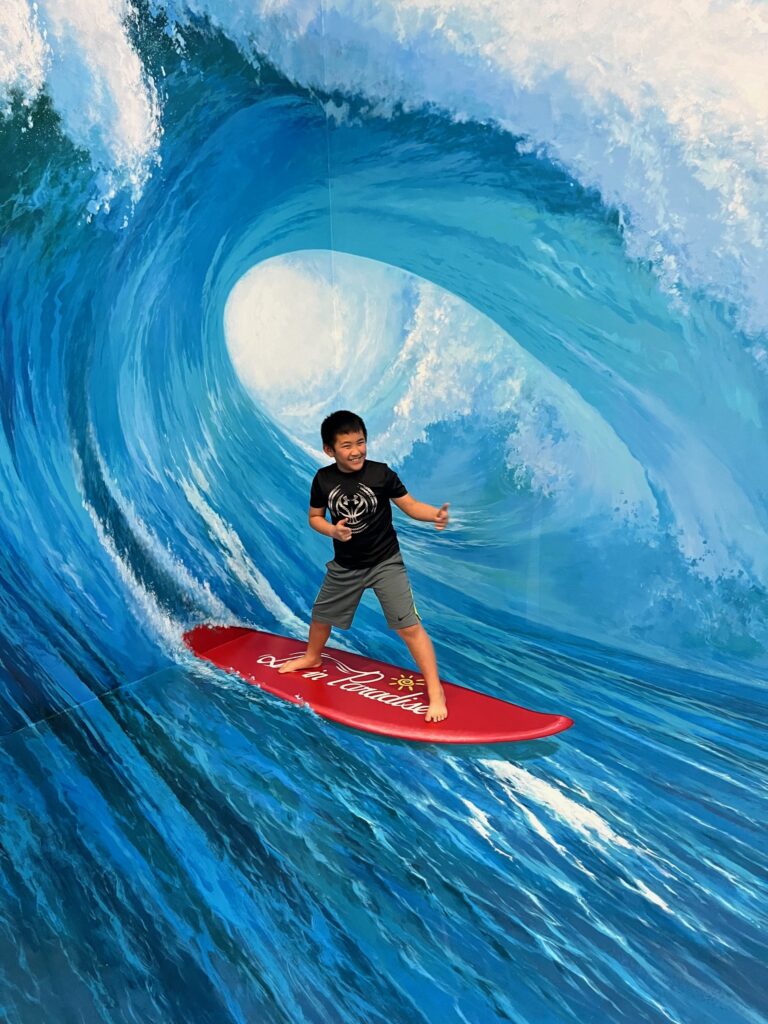
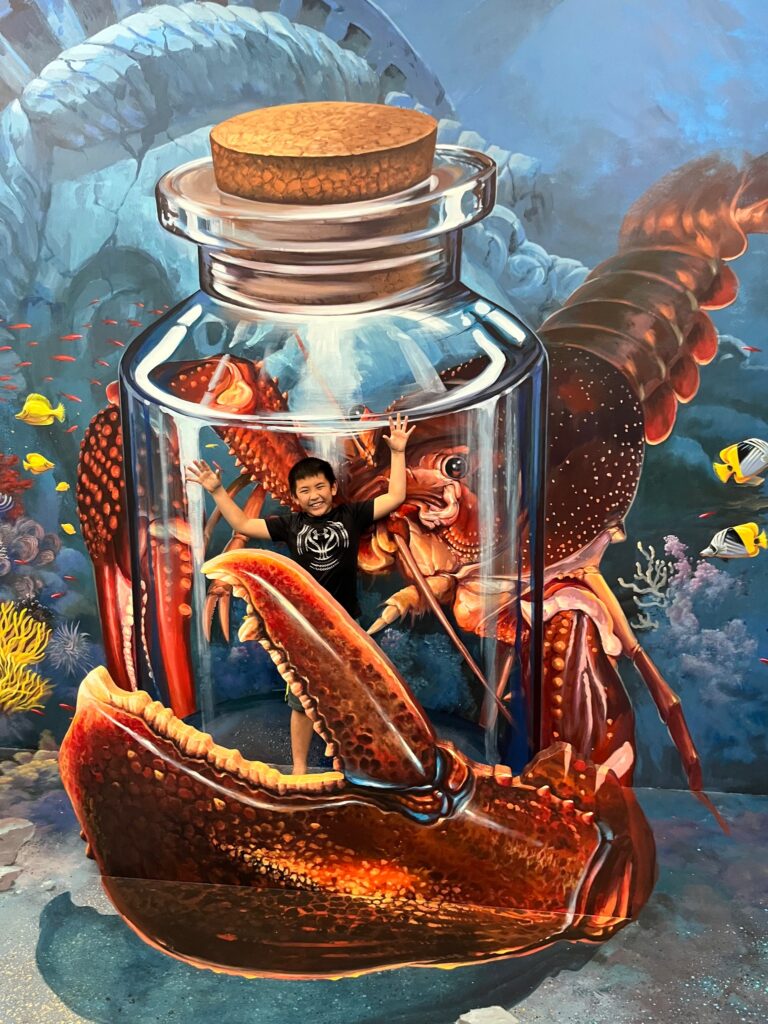
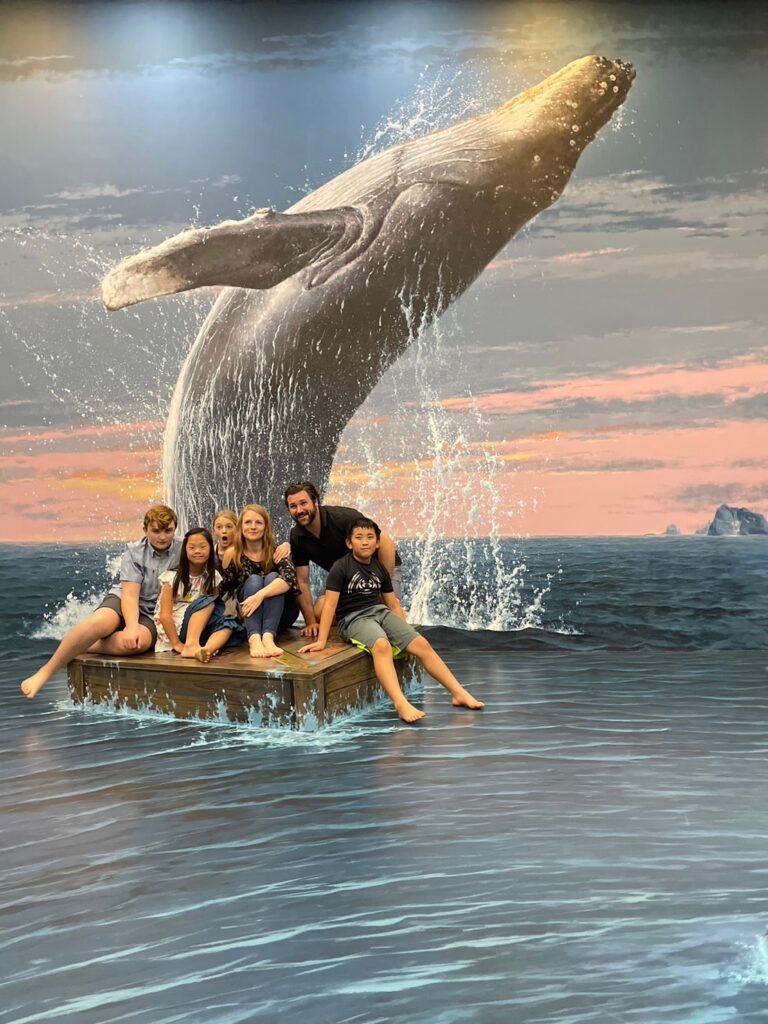
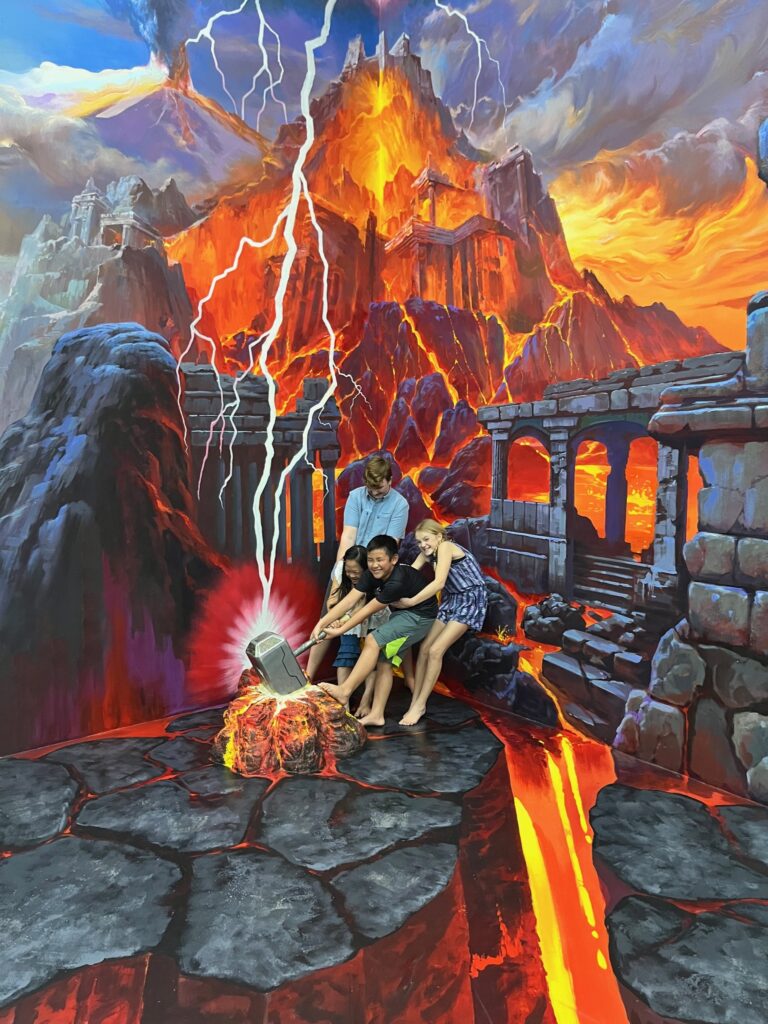
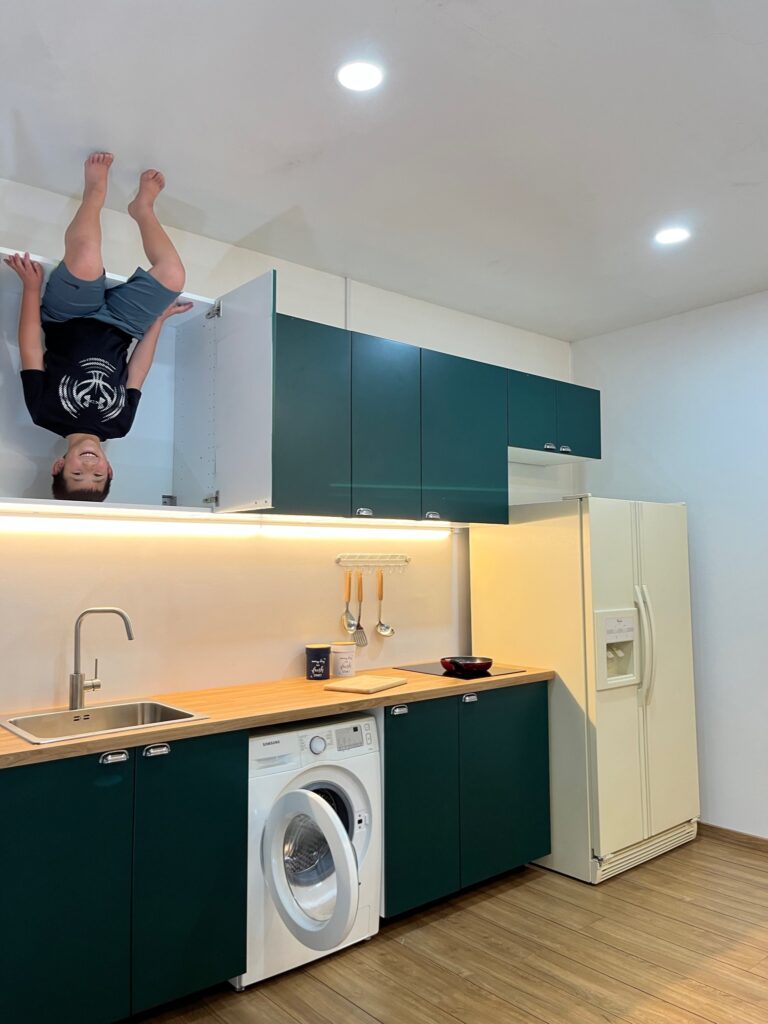
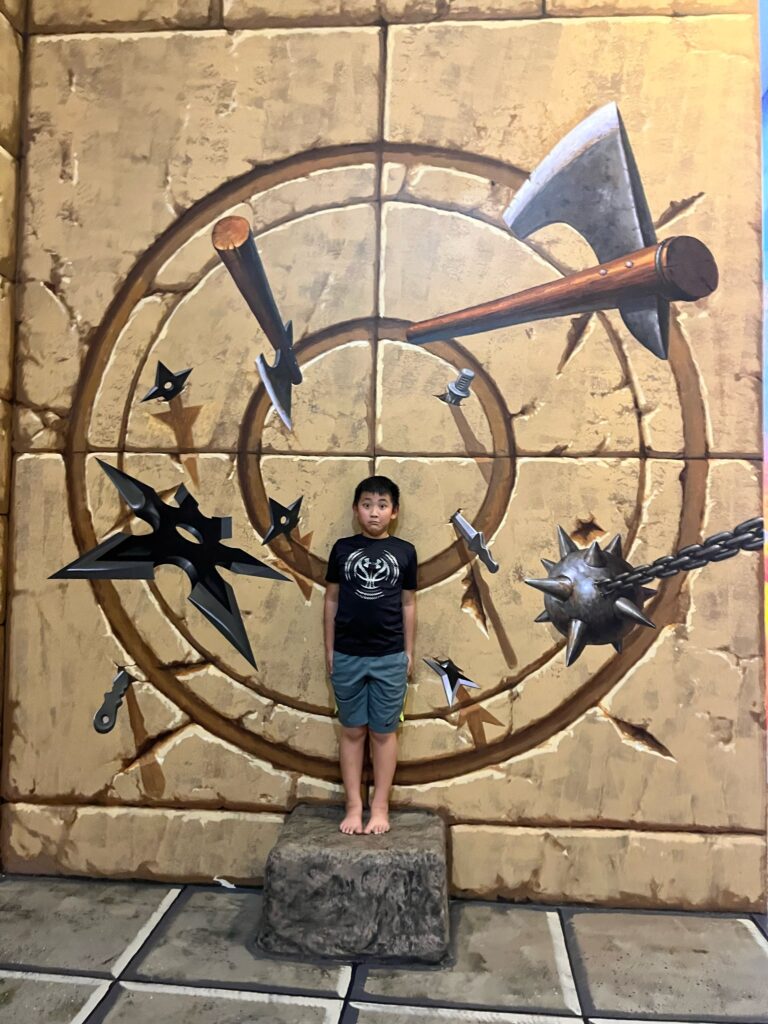
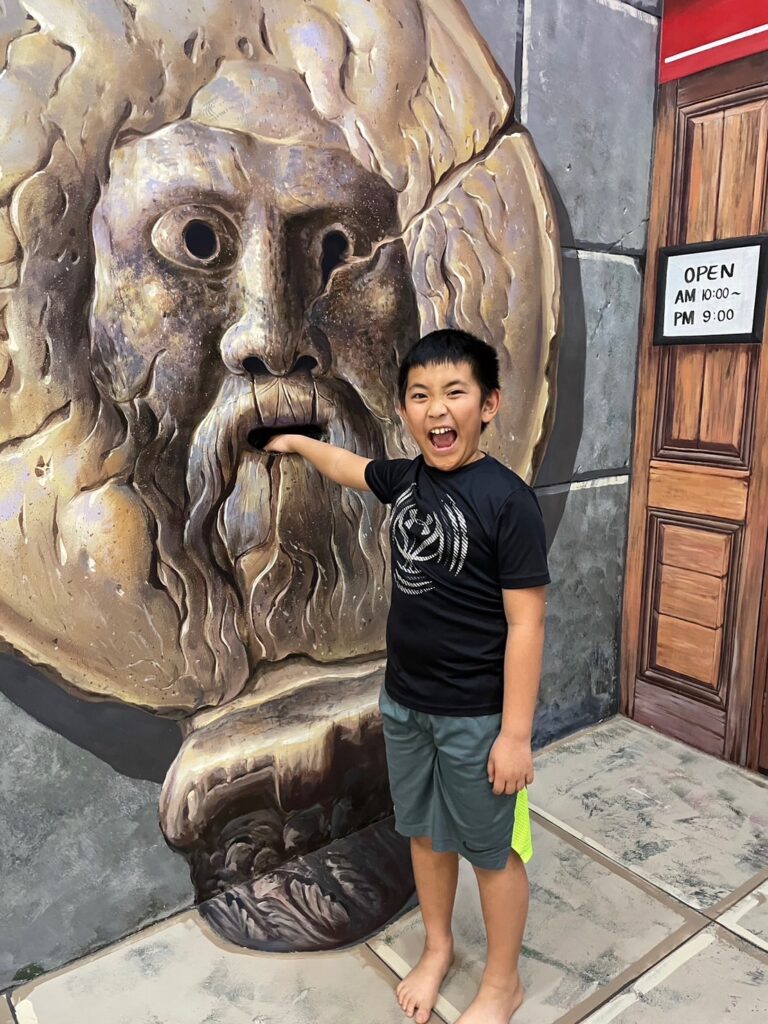
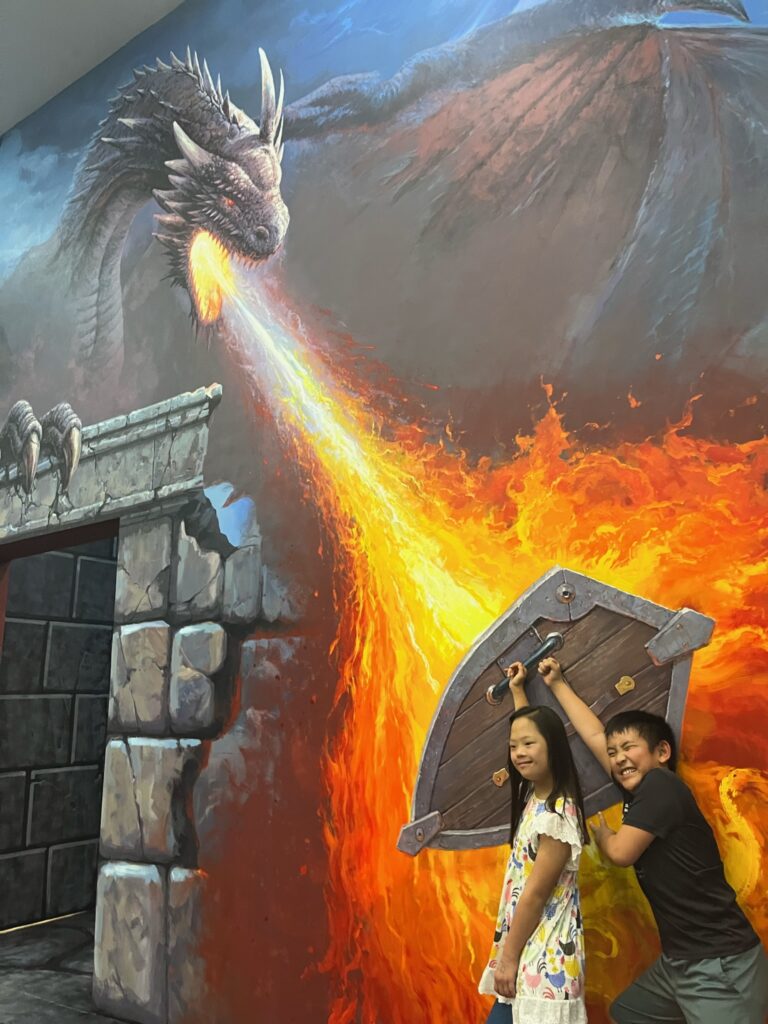
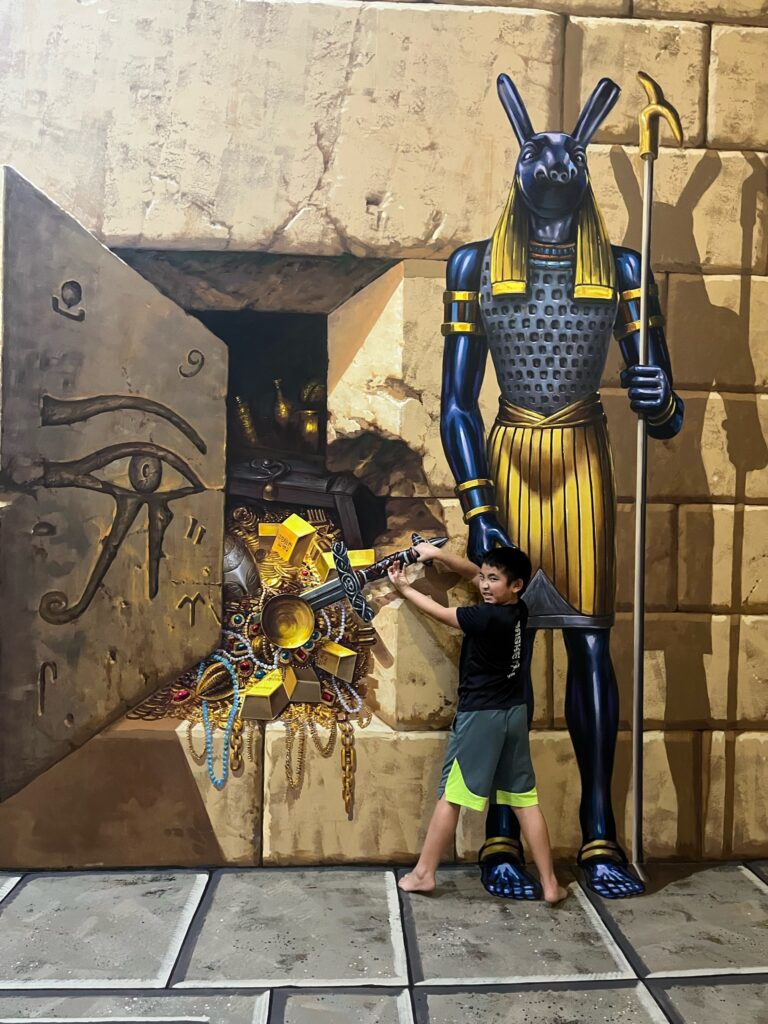
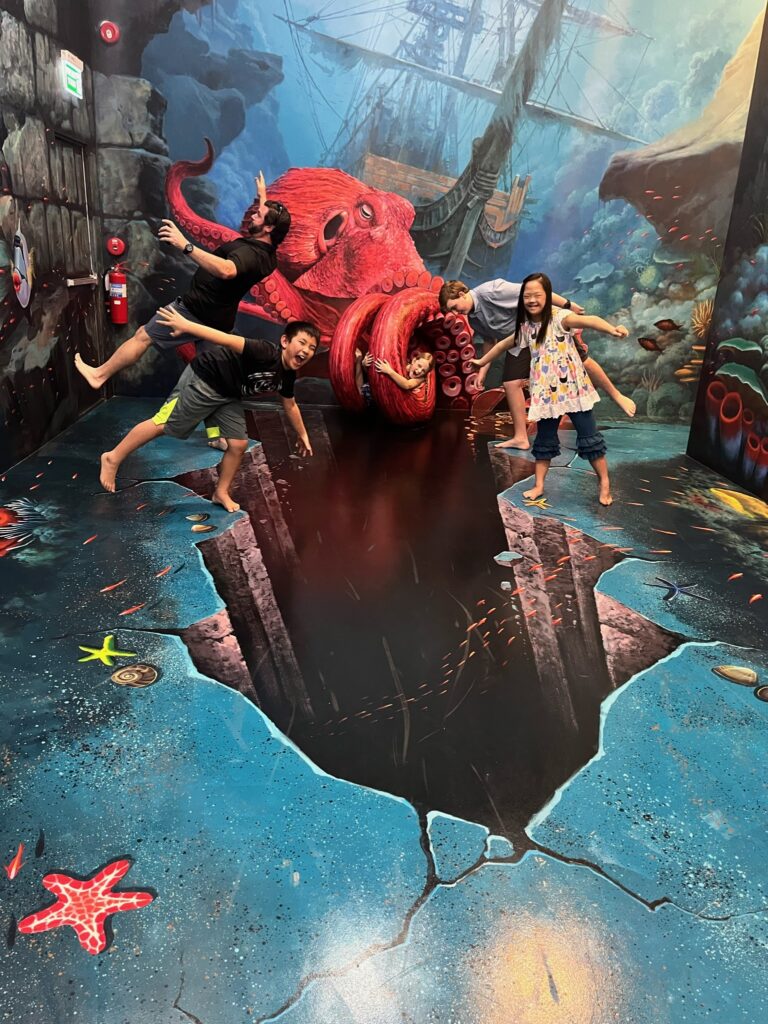
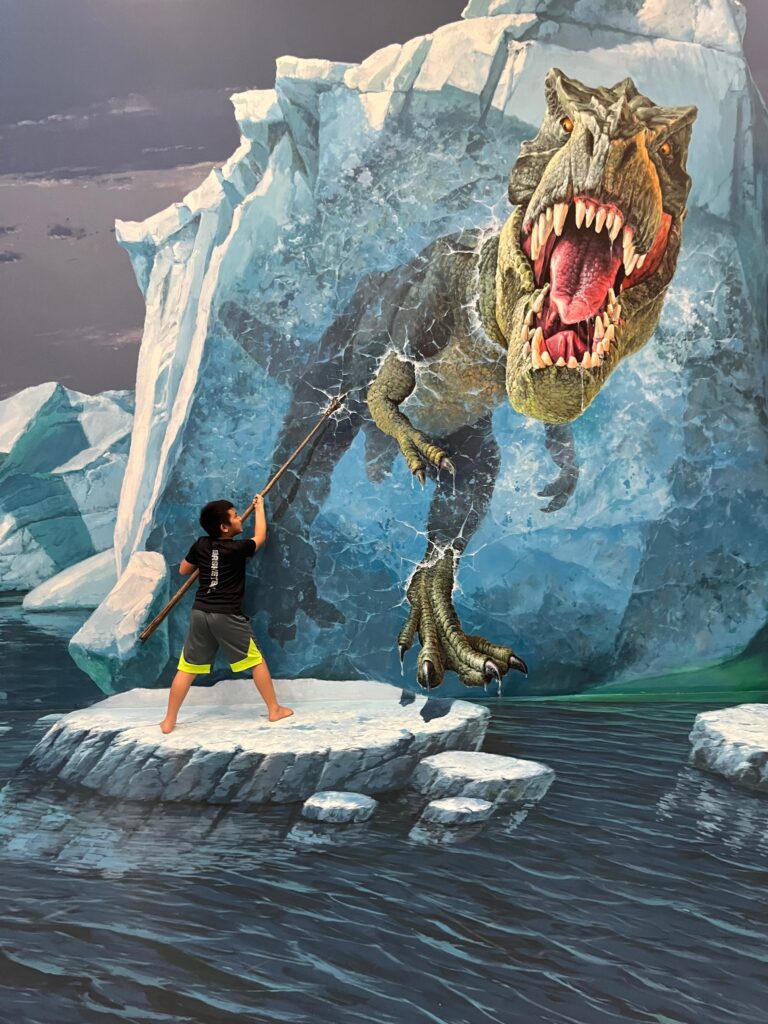
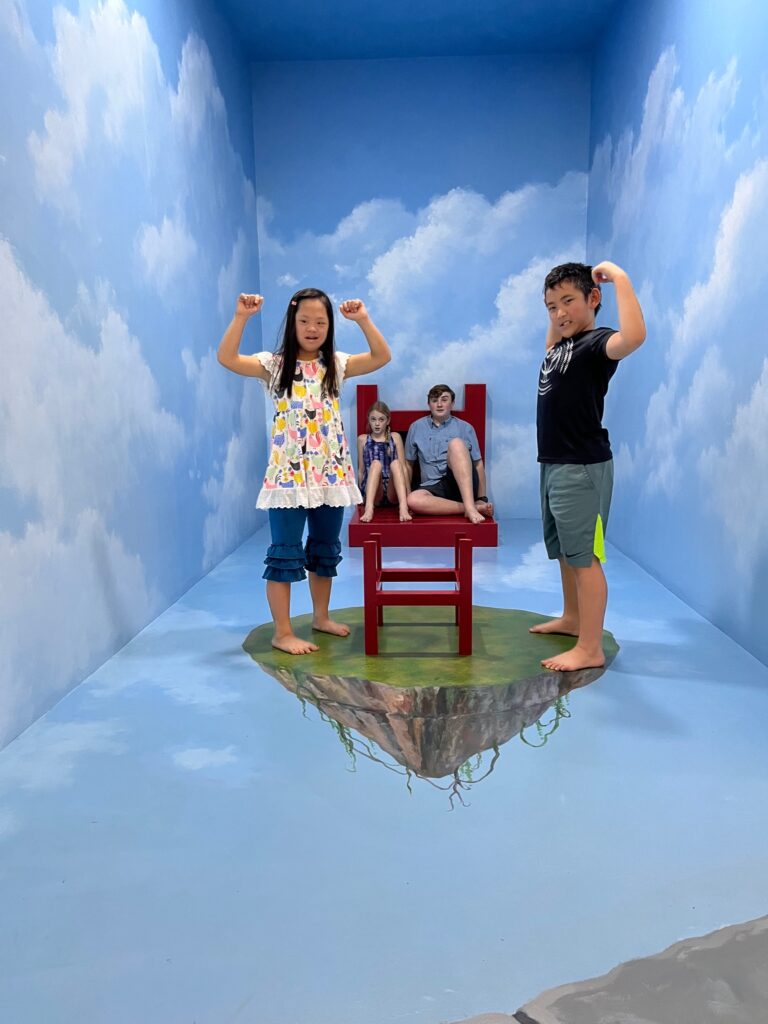
Also, one of the families took us to the zoo with them. It was really fun because we got to rent a golf cart and we saw a whole bunch of cool animals that live in Thailand and other places. Afterwards, we went to this awesome restaurant with an big pretend boat outside and we played tag on it.
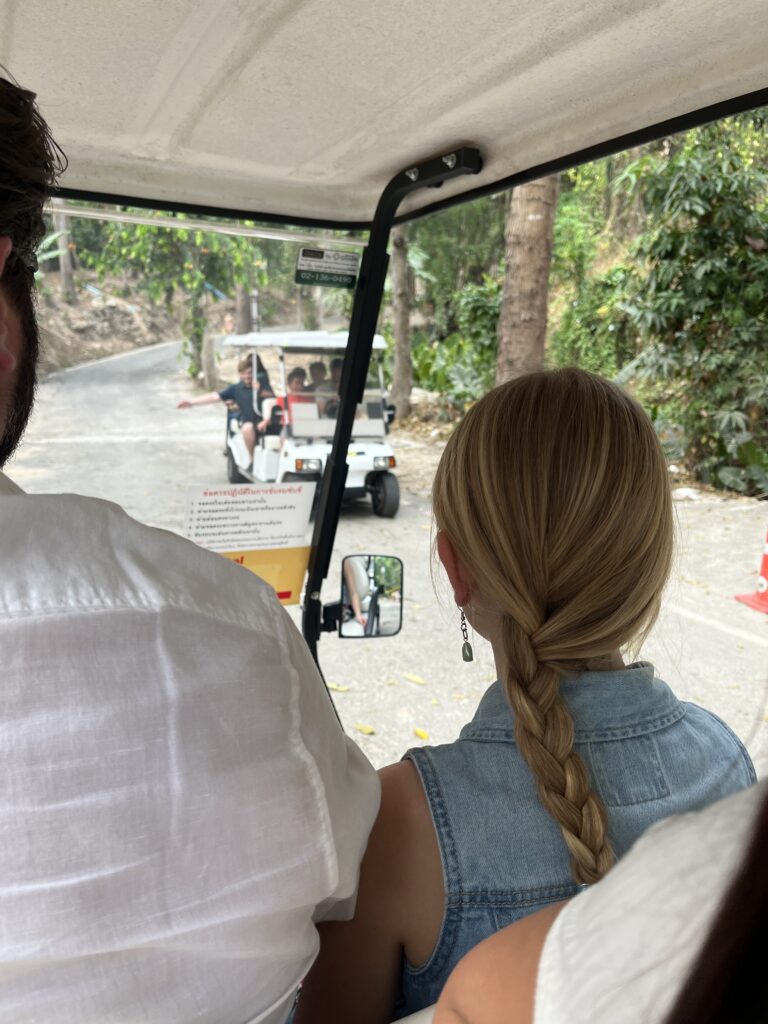
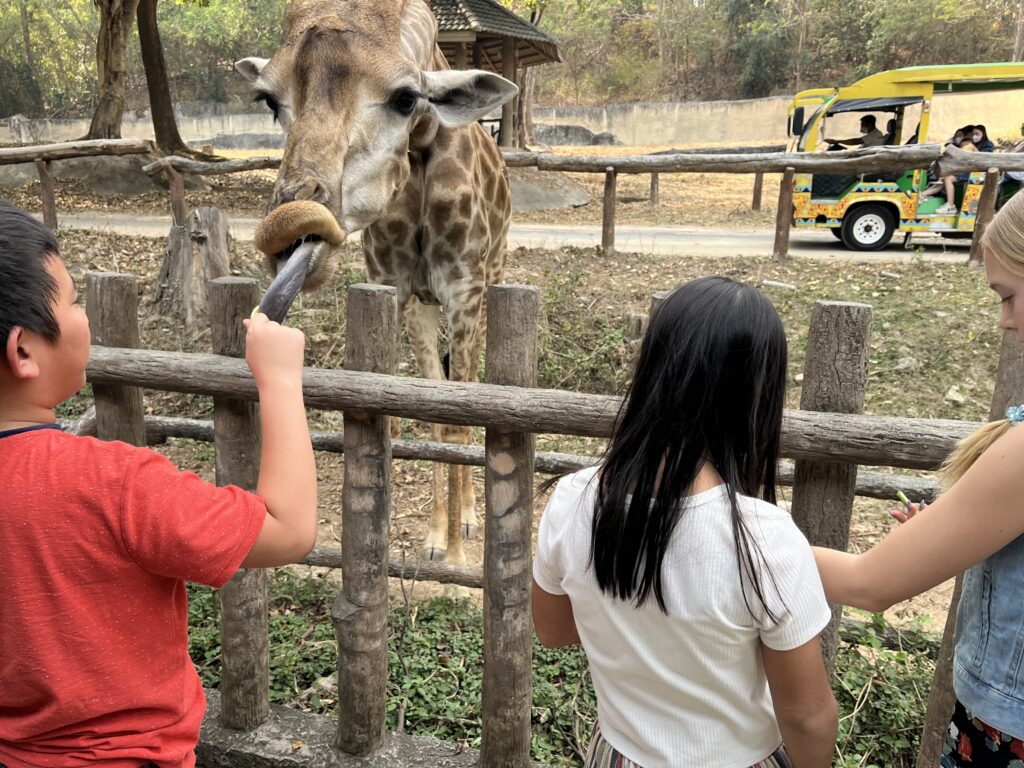
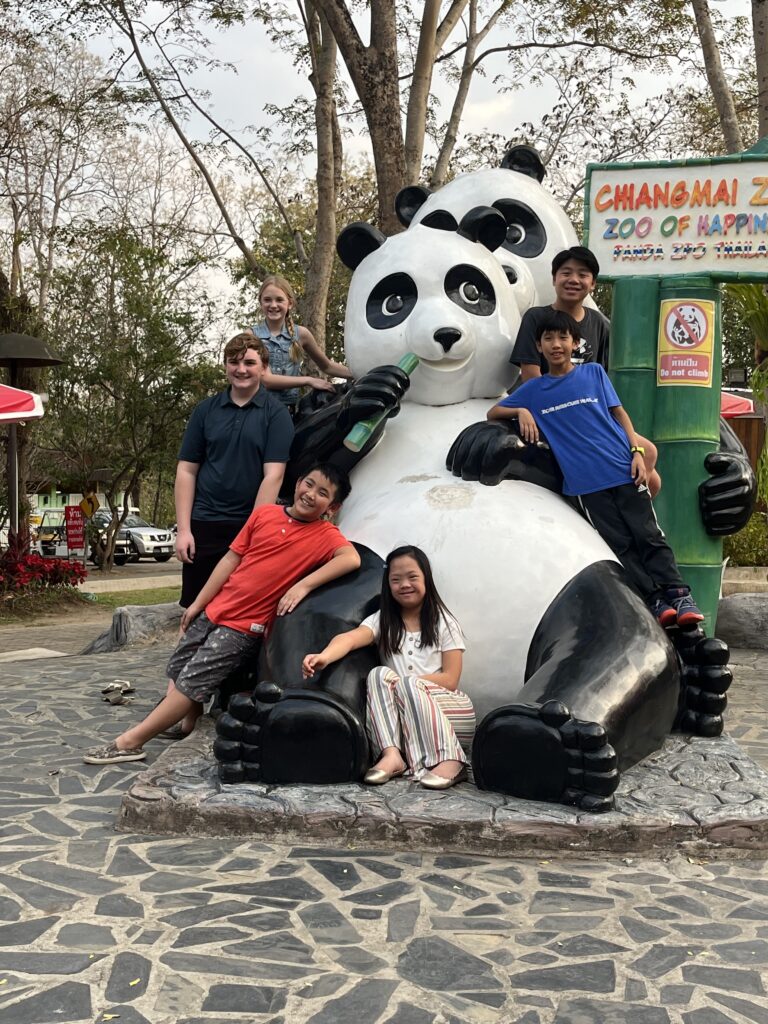
I am really happy we live in Thailand now because my dad is helping ZOE stop child trafficking. I think my dad is doing what God made him to do. I want to support him and do what I can do to help raise money for ZOE so that we can give help to the kids who have been trafficked. My heart makes me feel like I want to help and give them a normal life again, because after being trafficked it would be hard.
THE END
-
How to Spot a Monster
I’ve often wondered with regards to human trafficking, “How do you measure the effectiveness of prevention?” It seems as if there is no metric to know if efforts on the front end have prevented the feared atrocity from occurring in the first place.
On a prevention outreach near the Myanmar border a few months ago, I witnessed first-hand encouraging evidence of the ZOE Prevention Team’s effectiveness at stopping a horror before it begun. In front of an audience nearing a thousand refugee children, The Prevention Team performed a powerful drama. Absent any dialogue, the play showcased how children are often lured into human trafficking and the many subsequent forms of exploitation.
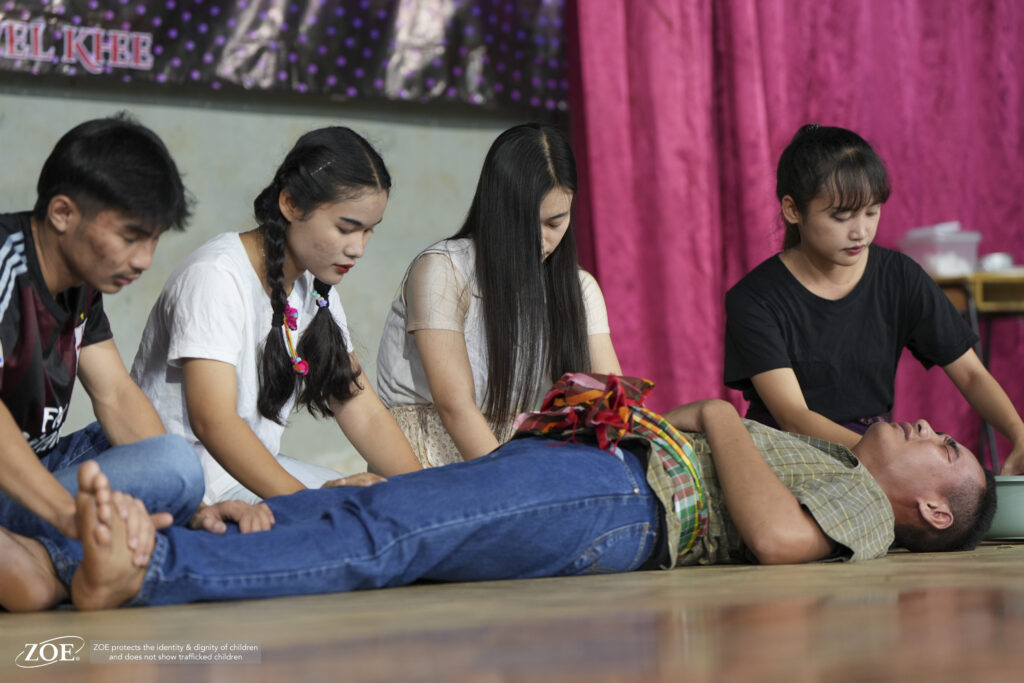
The story began with three happy siblings enjoying their family when tragedy befell their father, now no longer able to care for his children. On stage arrived a well-dressed couple, clearly appearing at a higher socio-economic level than both the pretend children on stage, as well as the actual children in the crowd. The audience vocally cheered at the arrival of these well-to-do folks on stage who appeared as reputable heroes to the tragedy-stricken siblings. The siblings left with the well-dressed duo, in hopes of a future filled with opportunity.
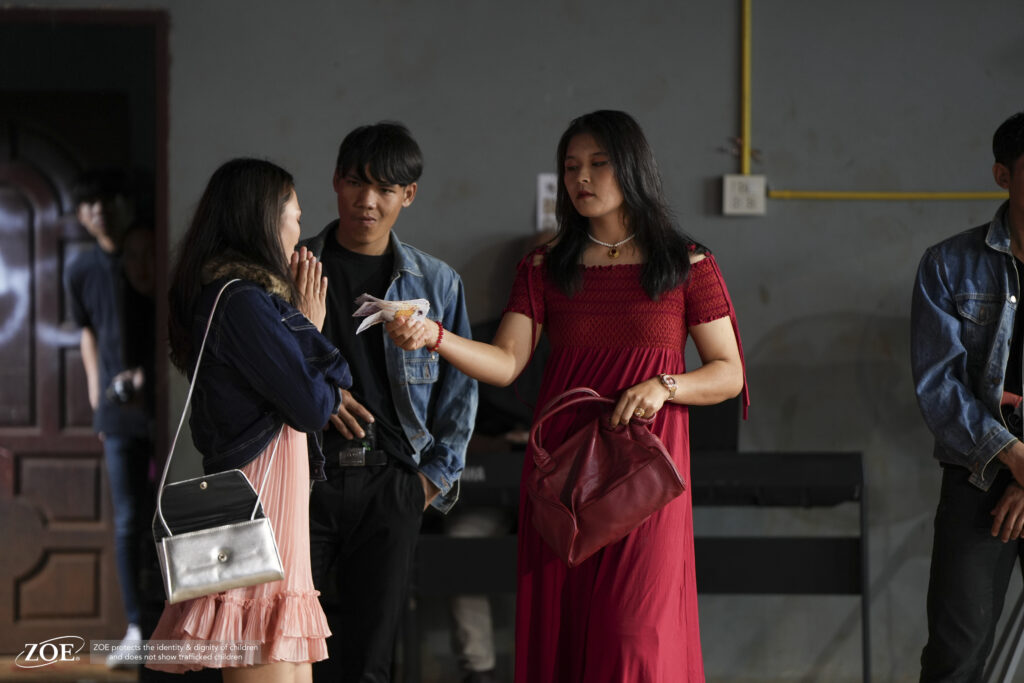
Unbeknownst to the siblings, the couple were paid for introducing the crestfallen kids to an elegant woman in a beautiful, bright-red dress. With make-up, high heels, bundles of cash, and poise, she entered the stage to roaring applause and cheers from the audience. Her presence, demeanor, and attire conveyed power, wealth, and sophistication; attributes seemingly unattainable to the children in the crowd. As the story unfolded, the woman in the red dress was revealed to be not the hero the audience expected, but rather a beautifully dressed monster in disguise. She sold one of the sisters into sexual slavery. The brother was forced into hard labor. The other sister had her eye’s removed for black-market organ sales, was beaten, and forced to beg for money on the street.
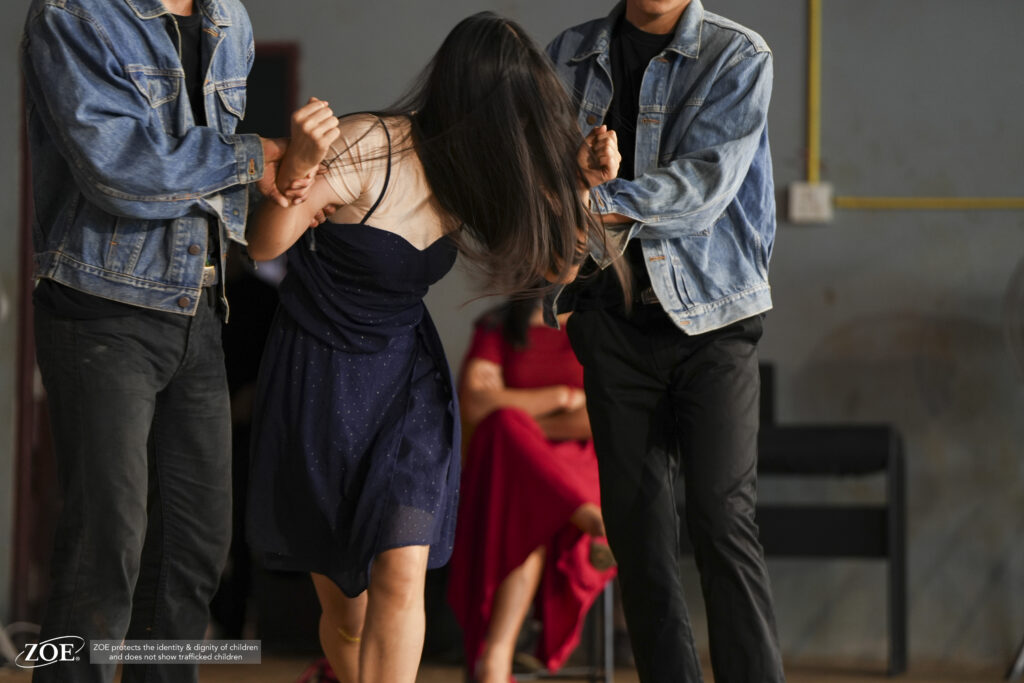
It was an emotionally powerful story. While it is a fictional depiction of the real-life terrors experienced in human trafficking, none of it was exaggerated. As powerful as the drama was for me, the most memorable part was the shift in reaction from the audience. The children in the crowd were incredibly poor. Their lives have been devastated by war, poverty, brokenness, and difficulty. Tragically, pain and hardship are much of all they know. Seeing the classy, well dressed, and sophisticated actors on stage garnered an immediate reaction of ovation and approval. But as the story unfolded, the true character and motivations of those face-value heroes was unveiled and the audience’s adulations diminished. Their former applause turned to silence. Their cheers switched to gasps. Children looked away and others covered their mouths in astonishment. The apparent heroes were the actual villains. I was able to watch these children recognize there was more than meets the eye.
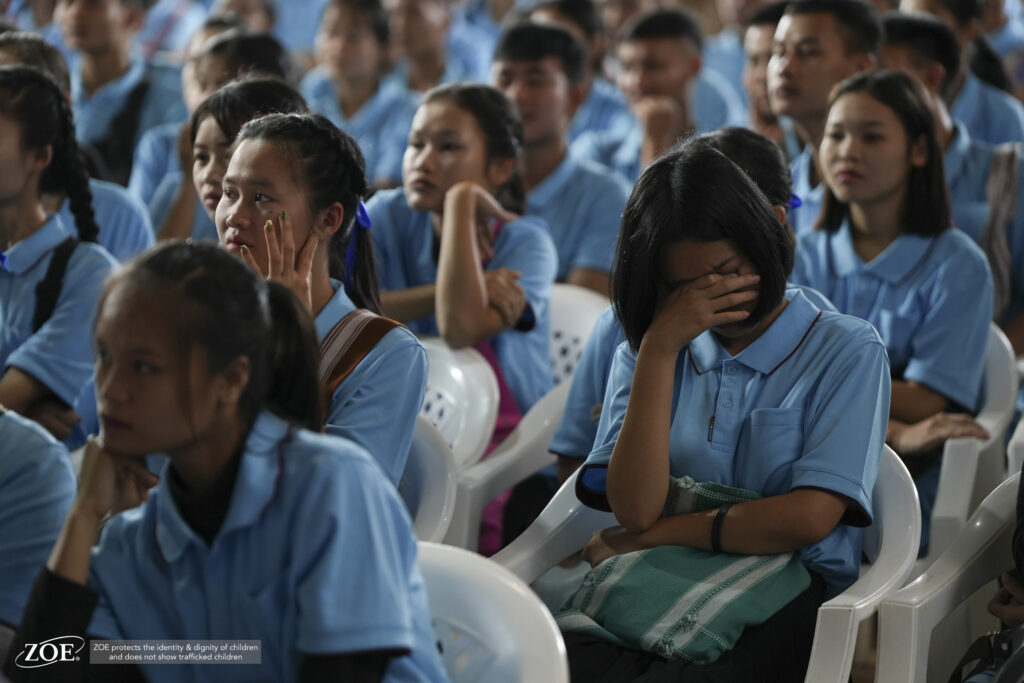
The truth remains, it is incredibly difficult to objectively measure the effectiveness of prevention. But if what I witnessed was any indication, those school children are now far more aware of the real-life predators actively looking for them, seeking to cause harm and destruction, desiring to take advantage of their innocence.
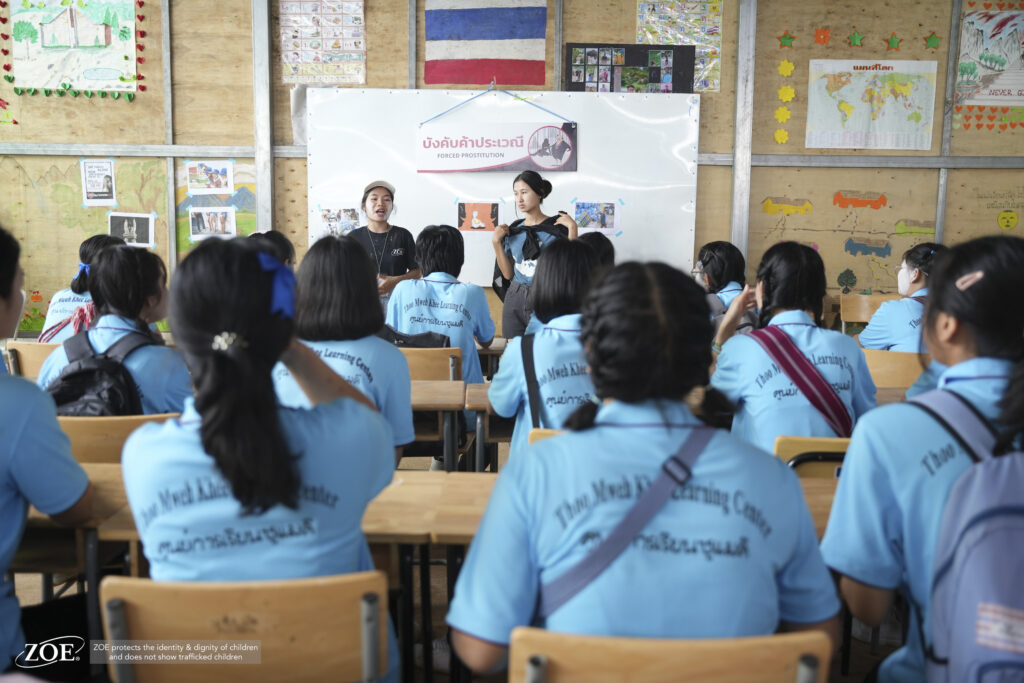
The rest of the outreach was filled with fun training, resources and techniques to help keep those kids safe. As the adage goes, an ounce of prevention is worth more than a pound of cure.
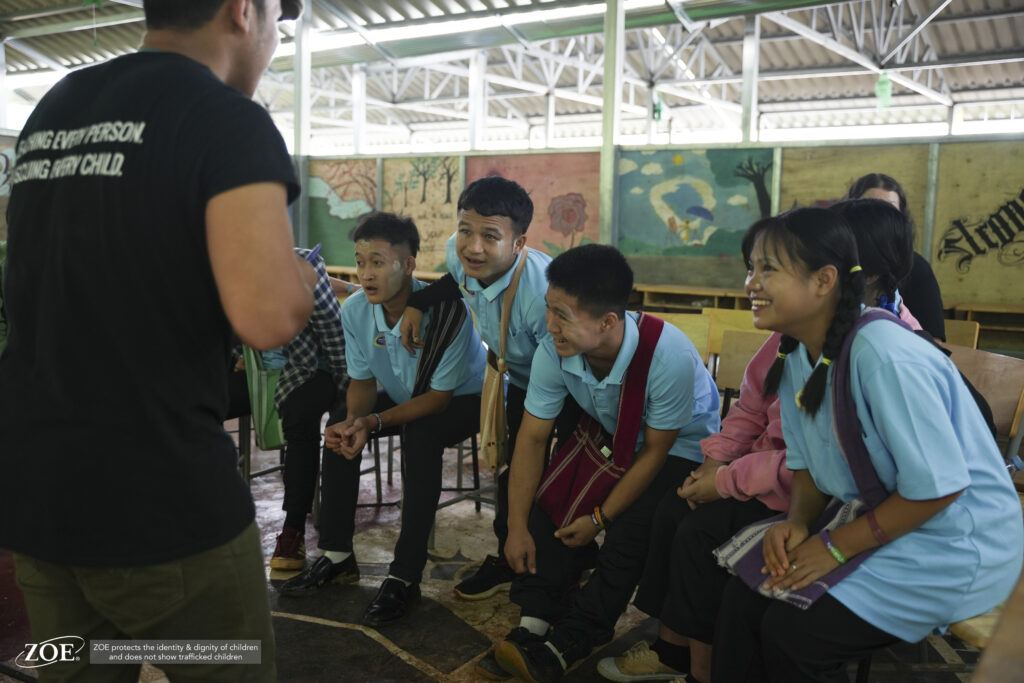
Helping these kids navigate life with the cards they’ve been dealt is worth all our efforts and attention, while simultaneously praying they’re never in a position requiring rescue.
